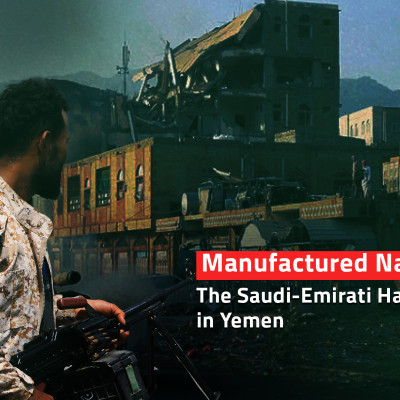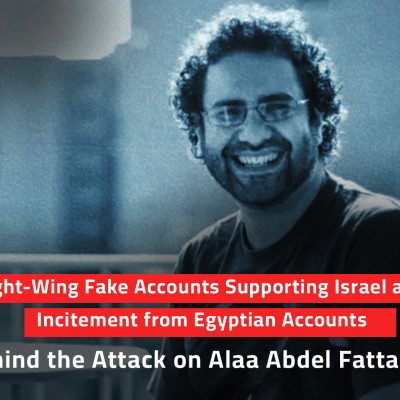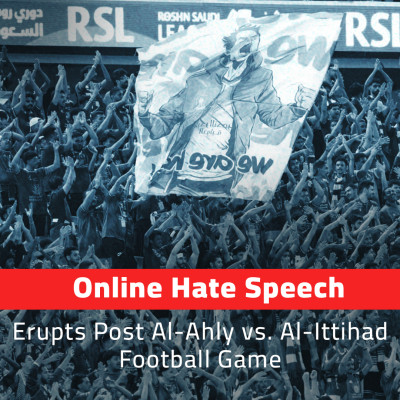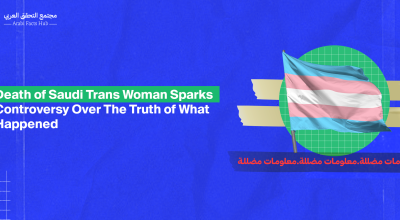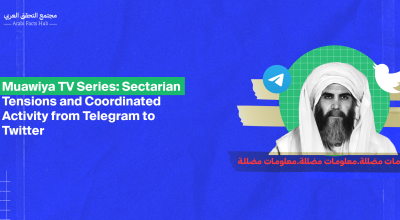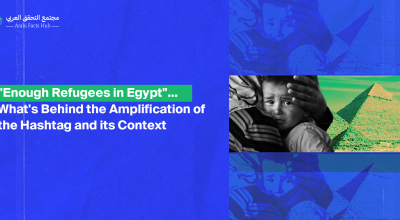Fake and Inactive Accounts Inflate Online Campaign Against 'Daraj' and 'Megaphone”
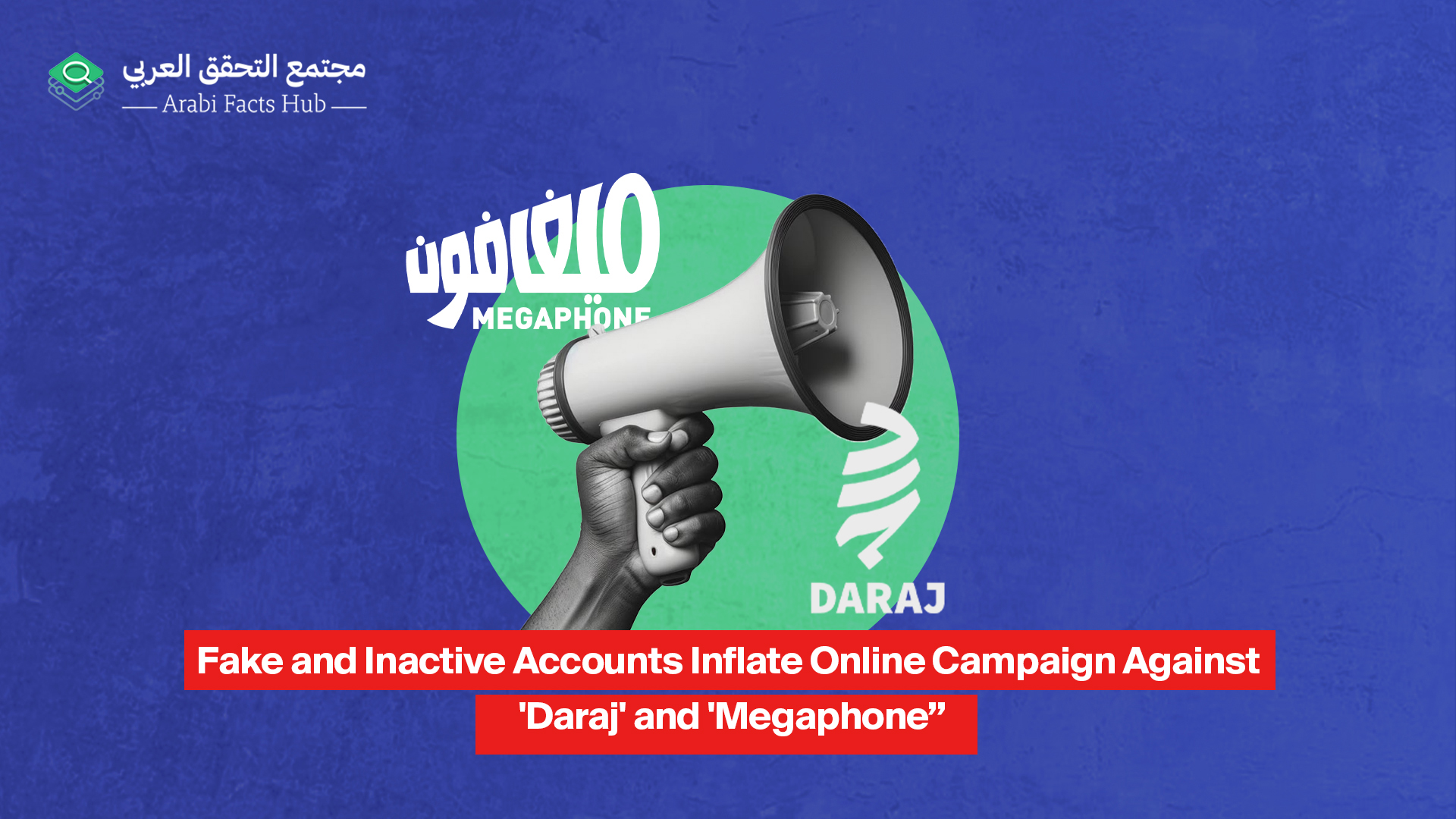
A locally driven Lebanese campaign, spearheaded by dormant accounts and amplified by Saudi commercial accounts, has accused independent media platforms Daraj and Megaphone of receiving “suspicious foreign funding aimed at sabotaging the economy.” The campaign, which has persisted for several weeks under the hashtag #الإعلام_الممول (Funded Media) culminated in a decision by Lebanon’s Public Prosecutor at the Court of Cassation to refer related legal complaints to the Appellate Public Prosecutor’s Office. Ibrahim Hilal of Arabi Facts Hub investigates the origins of the campaign and the digital accounts fueling it.
Lebanon’s Public Prosecutor at the Court of Cassation, Judge Jamal Al Hajjar, has referred a legal complaint filed by attorneys Elie Shahla, Joseph Zeidan, and George Mousalli against the independent media platforms Daraj Media and Megaphone to the Appellate Public Prosecutor’s Office in Beirut for further investigation.
The complaint accuses both platforms and their operators of committing crimes such as “undermining the financial standing of the state, destabilizing confidence in the national currency, inciting mass withdrawals from banks, encouraging the sale of government bonds, undermining the state’s authority, conspiring against the state, weakening national sentiment, receiving suspicious foreign funding, and financing media campaigns aimed at eroding trust in Lebanon and its economy.”
Roughly two weeks prior to this decision, a coordinated digital campaign emerged. A group of accounts on social media circulated a video originally broadcast by the channel “Nabd Lubnan” (Pulse of Lebanon), accusing Lebanon’s independent media—especially Daraj and Megaphone—of receiving “suspicious foreign funding aimed at destroying the economy,” under the hashtag #الإعلام_الممول (Funded Media).
This report maps out the key networks interacting with this hashtag, revealing the involvement of commercial, automated, and semi-automated accounts that artificially amplified engagement with the hashtags—exaggerating the scale of the campaign and inflating its visibility.
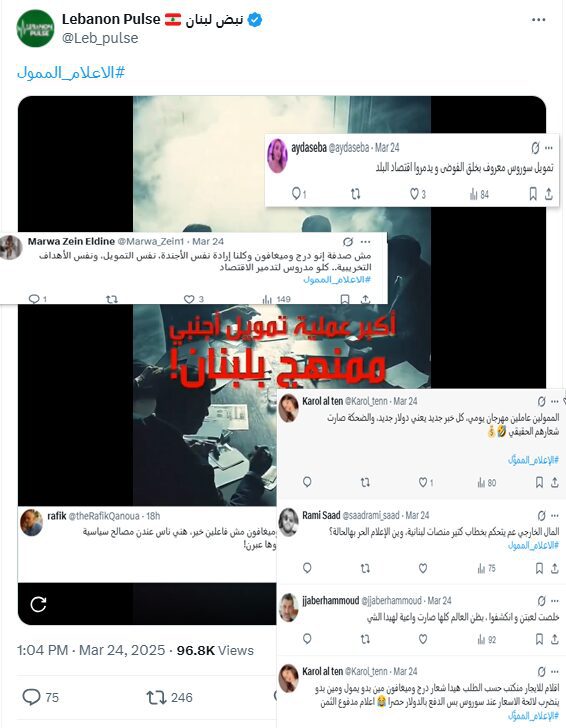
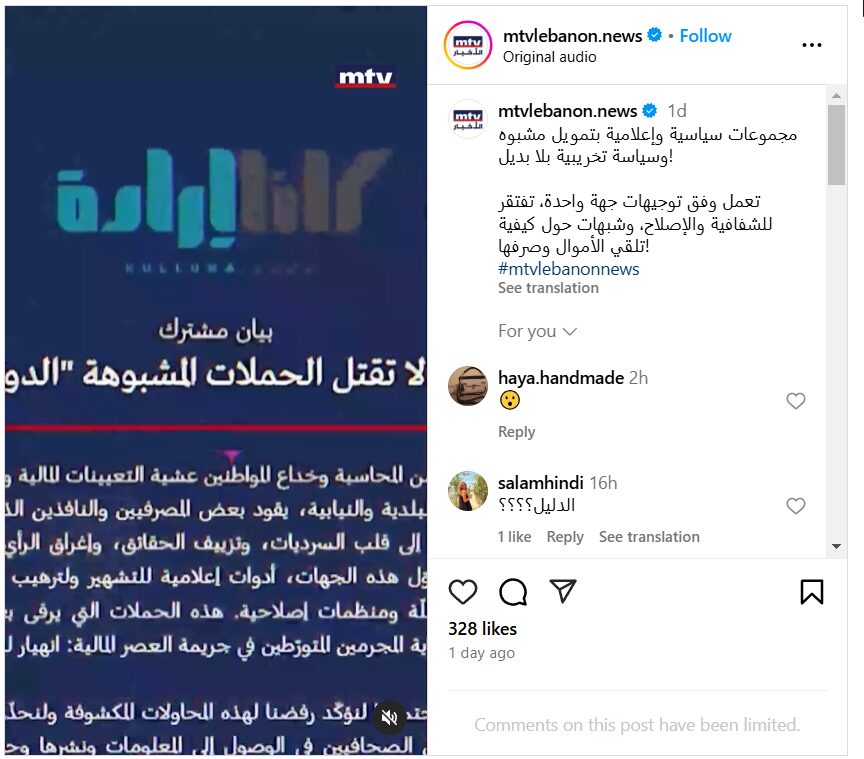
Campaign Indicators
On March 20, the organization "Kulluna Irada" issued a joint statement alongside several journalists, political figures, and media platforms, highlighting coordinated smear campaigns targeting the organization and a number of independent media outlets. According to the statement, these campaigns are backed by certain bankers and their powerful allies, aiming to manipulate narratives, distort facts, and flood public opinion with disinformation and conspiracy theories.
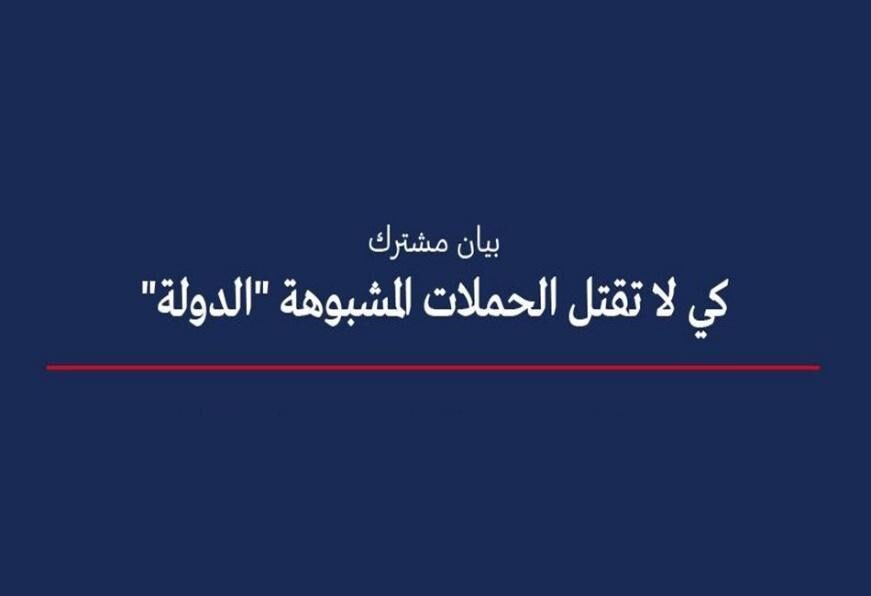
After the statement was issued, a video clip aired by the channel Nabd Lubnan surfaced, accusing Kulluna Irada of receiving foreign funding and serving foreign agendas "to brainwash people and steer them according to foreign interests."
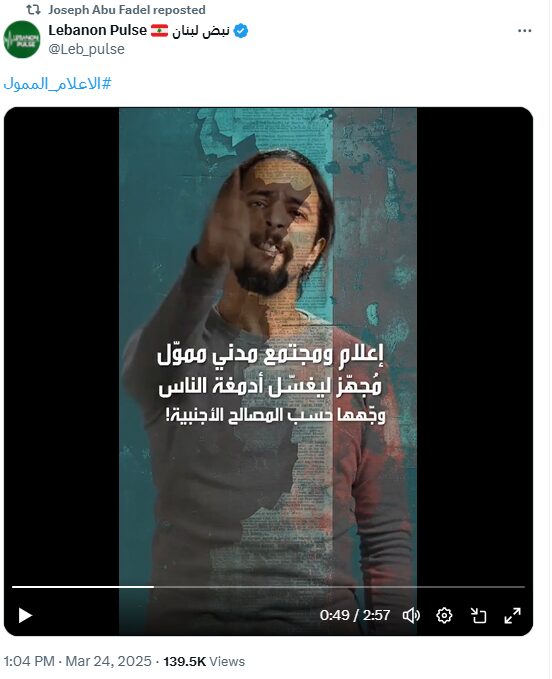
What is suspicious about the Nabd Lubnan account is that, since the Israeli airstrike that targeted Hezbollah Secretary-General Hassan Nasrallah in September 2024 — followed by another strike in October 2024, which Israel claimed targeted his successor, Hashem Safieddine — the account did not publish any news. It only reappeared in February 2025 to cover a single incident: a sit-in by Hezbollah supporters on the airport road. After that, it went silent again, before returning once more with a series of posts attacking the Kulluna Irada.
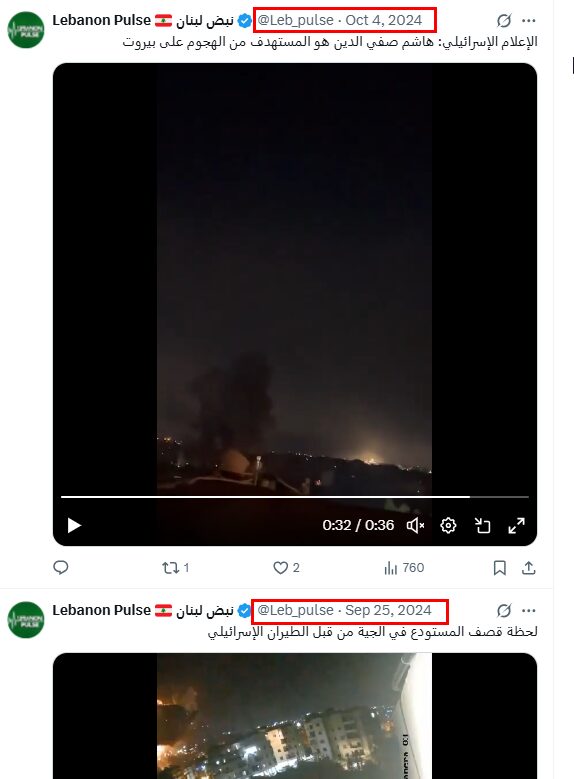
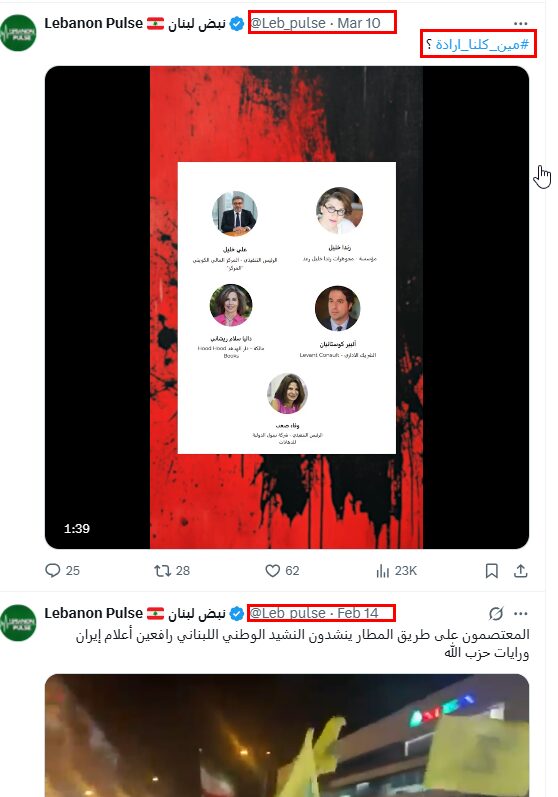
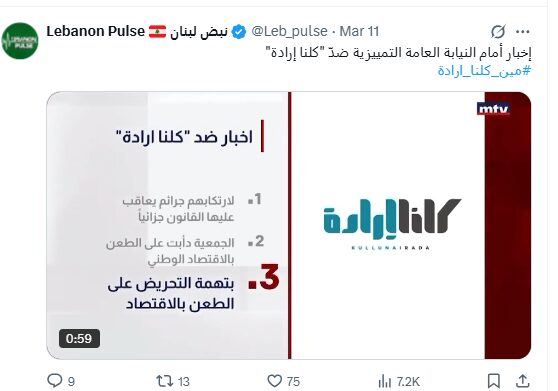
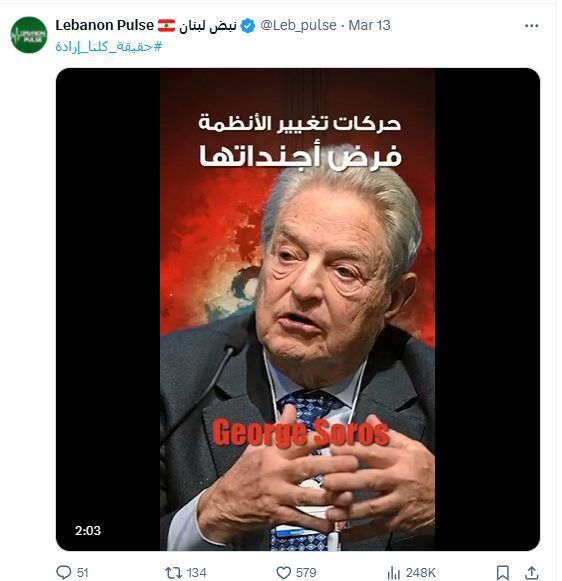
Using Meltwater, we analyzed the posts associated with the hashtag "#الإعلام_الممول" (Funded Media) and found that activity began on March 23, 2025, reaching its peak the following day. Although the number of posts did not exceed 2,000, their reach was wide, surpassing three million impressions
”
Using Meltwater, we analyzed the posts associated with the hashtag "#الإعلام_الممول" (Funded Media) and found that activity began on March 23, 2025, reaching its peak the following day. Although the number of posts did not exceed 2,000, their reach was wide, surpassing three million impressions
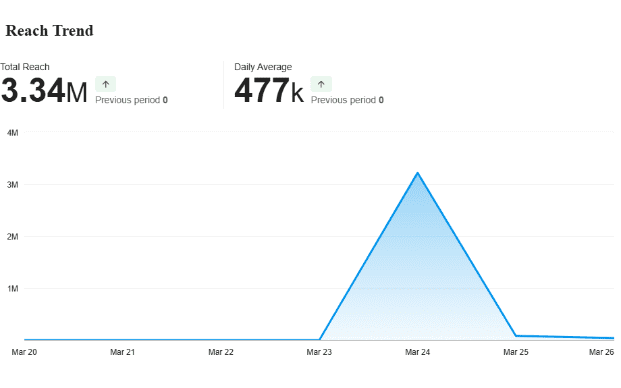
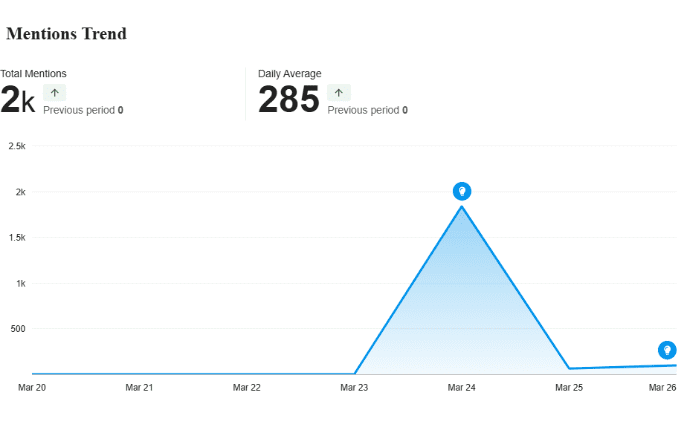
Posting patterns associated with the hashtag show that around 42 percent of total posts were original content, while the remaining percentage was divided between reposts and replies.
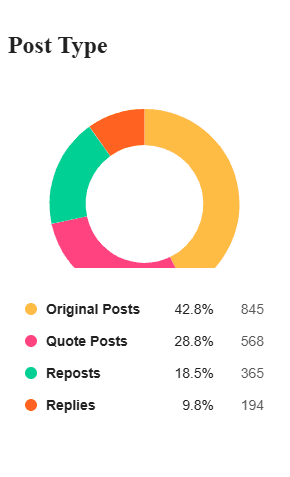
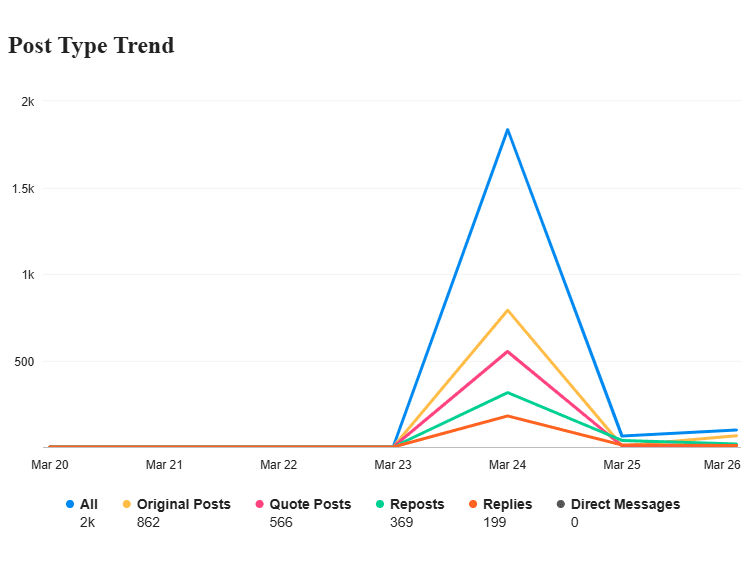
This initially suggests that a significant portion of these posts were spontaneous posts by real accounts that adopted the narrative accusing Daraj and Megaphone (whose names are linked to the Kulluna Irada organization) — of being "foreign-funded platforms serving political and ideological agendas."
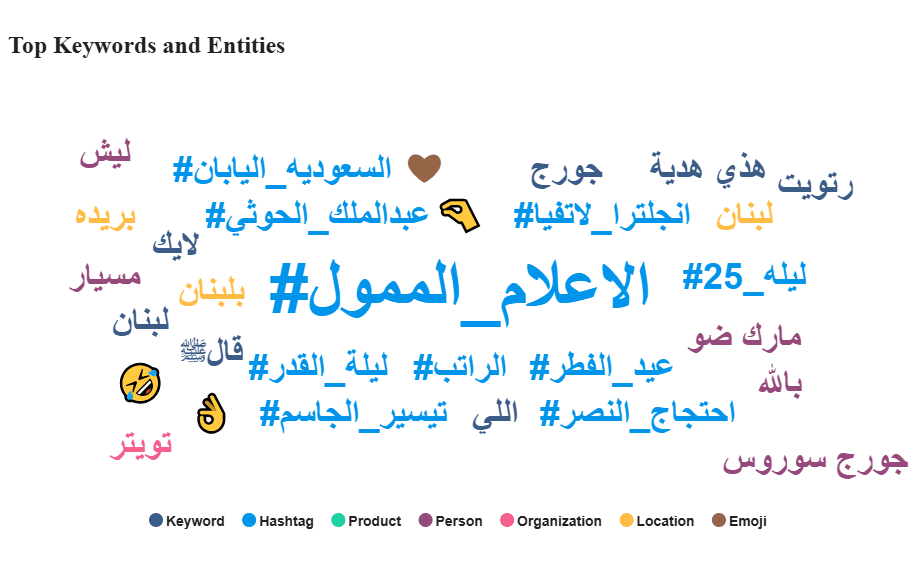
But the word cloud associated with the hashtag, along with the distribution of countries participating in it, revealed different indicators. The word cloud displayed terms unrelated to the topic or to Lebanon, such as "#عبدالملك_الحوثي" (Abdulmalik Al Houthi), "#السعودية_اليابان" (Saudi Arabia Japan), and "مسيار" (Misyar marriage).
This trend was particularly evident in the list of hashtags related to "#الإعلام_الممول" (Funded Media), as most of them were disconnected from the Lebanese political context. Saudi Arabia ranked second in terms of interaction with the hashtag, raising questions about the nature of engagement and the forces driving it.
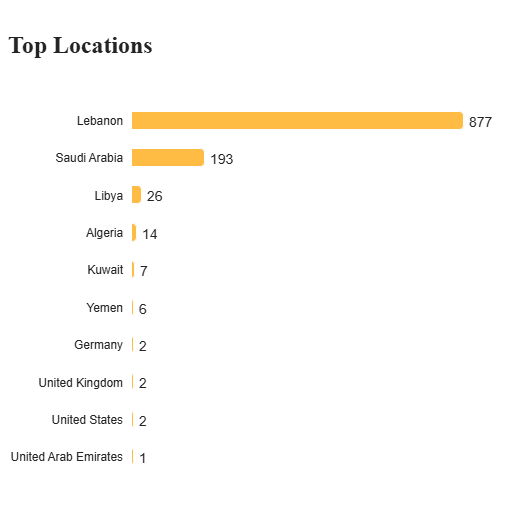
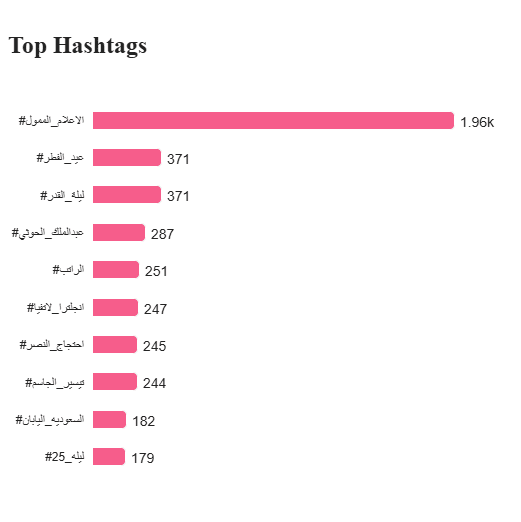
The noticeable activity of Saudi accounts interacting with the hashtag prompted us to review the most active accounts involved. This revealed the presence of inactive accounts, as well as commercial or suspicious Saudi accounts among those engaging with the hashtag.
Saudi Trolls in Beirut's Sky
Through analyzing the top posts that mentioned the "#الإعلام_الممول" (Funded Media) hashtag—most of which carried negative sentiments—it was found that the post by the “Nabd Lubnan" channel was the most widely shared, followed by two posts from Lebanese accounts: Nayla and Joanne Sabra.
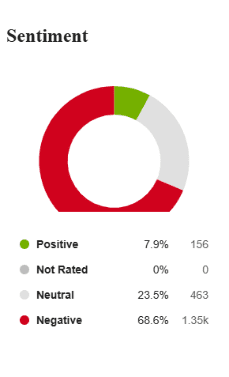
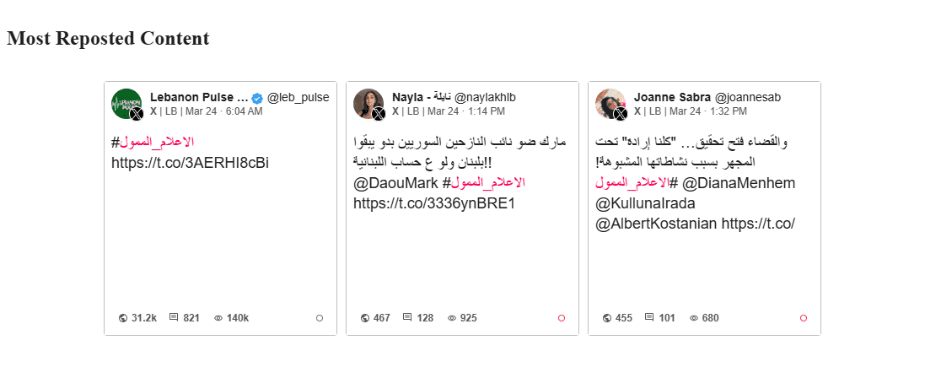
What stood out in Nayla’s posts was her linking of the "#الإعلام_الممول" (Funded Media) hashtag to the issue of "Syrian refugees," as she accused a member of parliament of working in favor of Syrian refugees against Lebanon—something unrelated to the main topic of the campaign.
The account also reshared the video clip originally posted by the "Nabd Lubnan" channel, which had in turn been shared by "MTV Lebanon News."
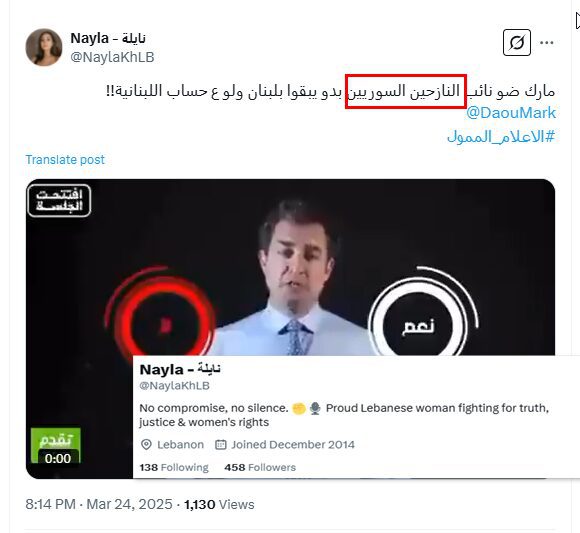
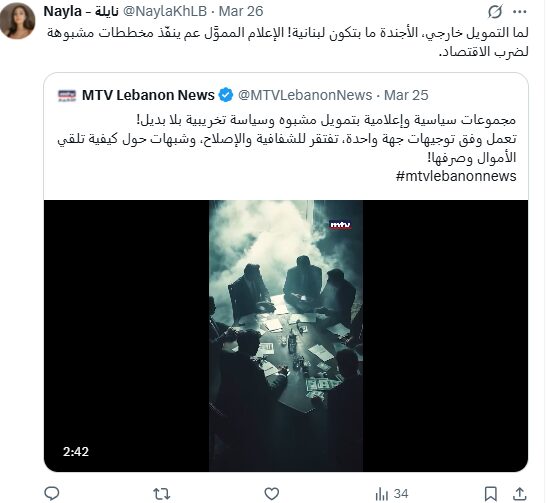
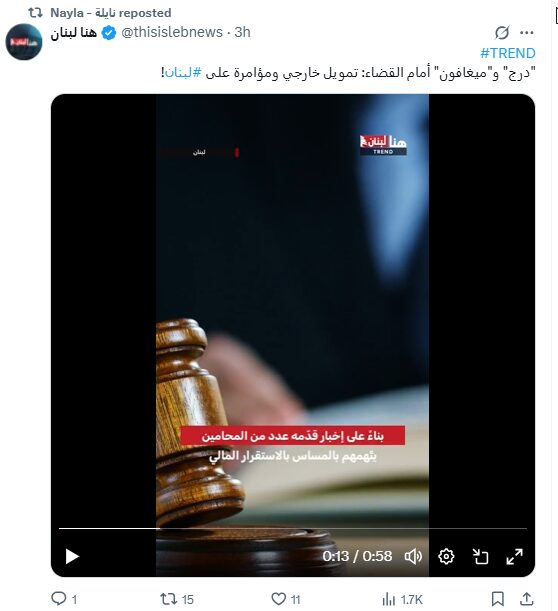
Joanne Sabra’s account shared the same content and adopted the same narrative.
Although both accounts were created in 2014, the earliest available post on both accounts dates back to March 2025, coinciding with the launch of the campaign.
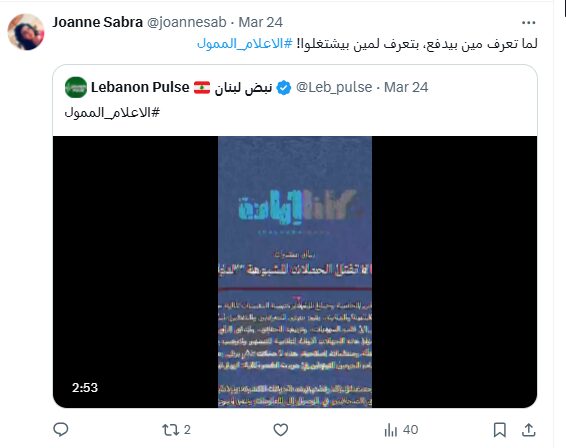
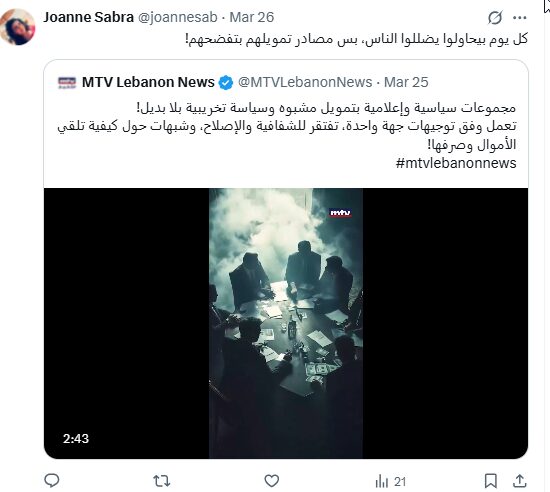
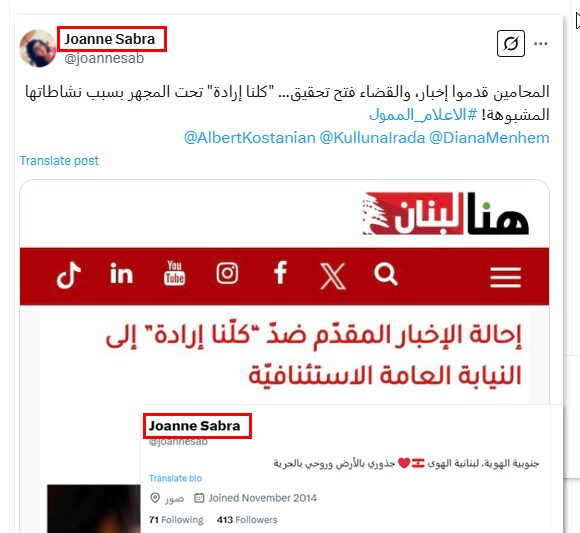
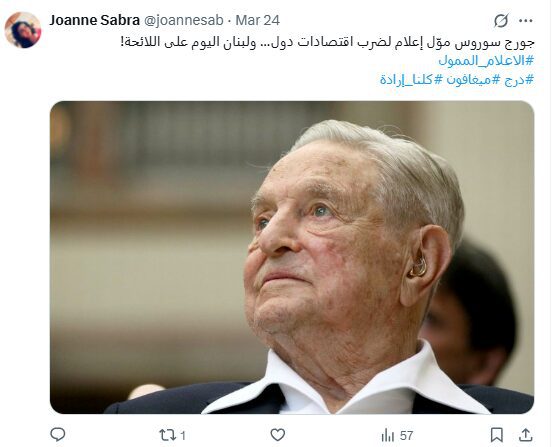
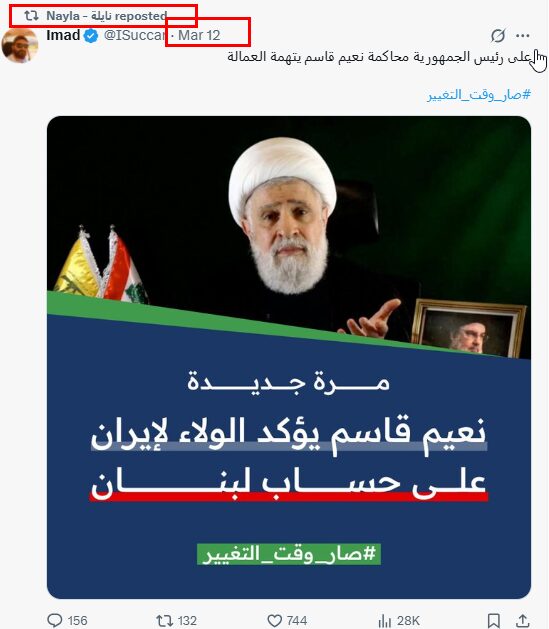
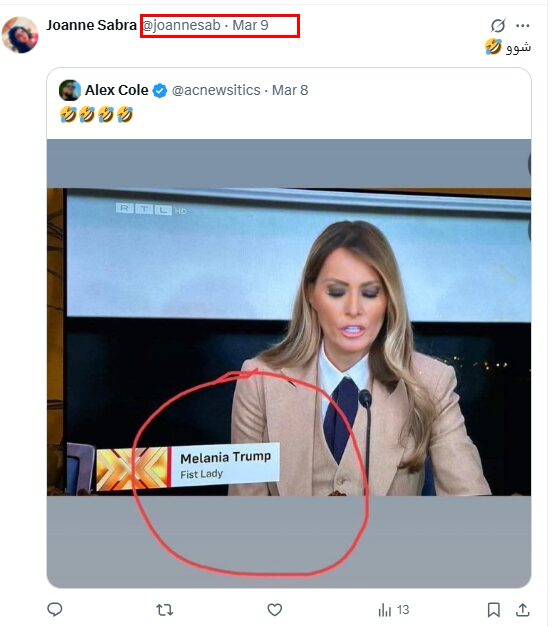
These accounts were not the only ones whose posts under the hashtag “#الإعلام_الممول” (Funded Media) received a large number of reposts; other accounts appeared as well, but this time, they were not Lebanese.
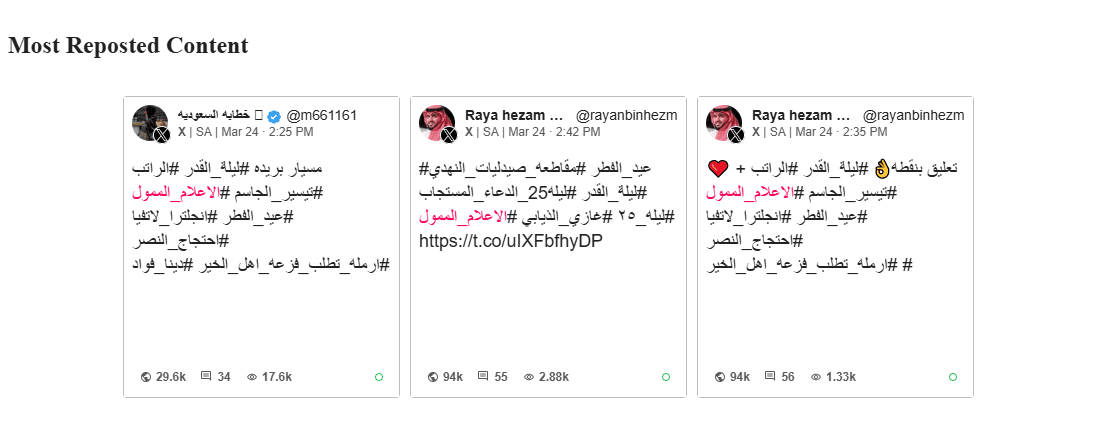
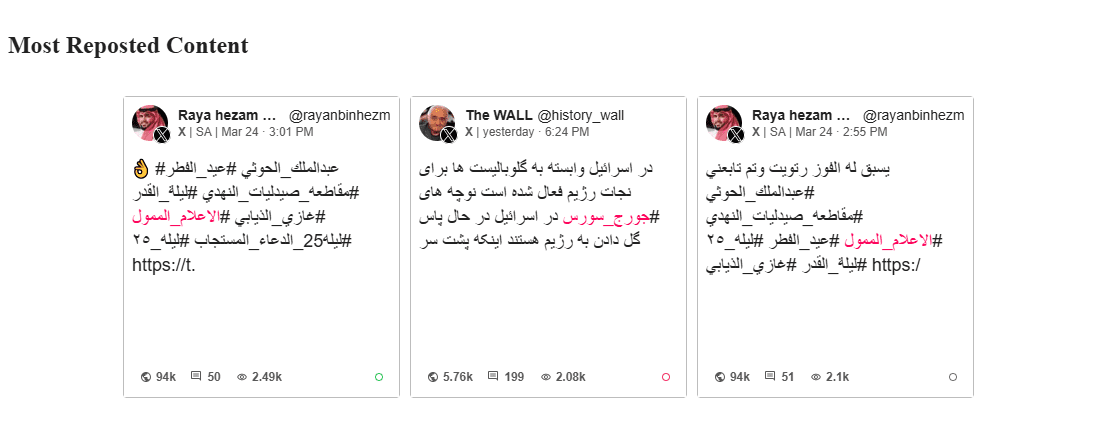
Some of the accounts interacting with the hashtag came from Saudi Arabia, aiming to amplify it. Upon examining these accounts, it became clear that some were commercial accounts, while others were accounts posting explicit content.
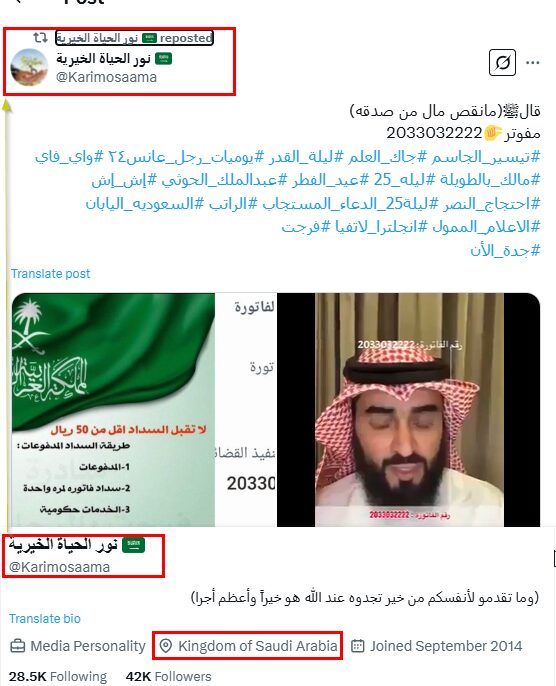
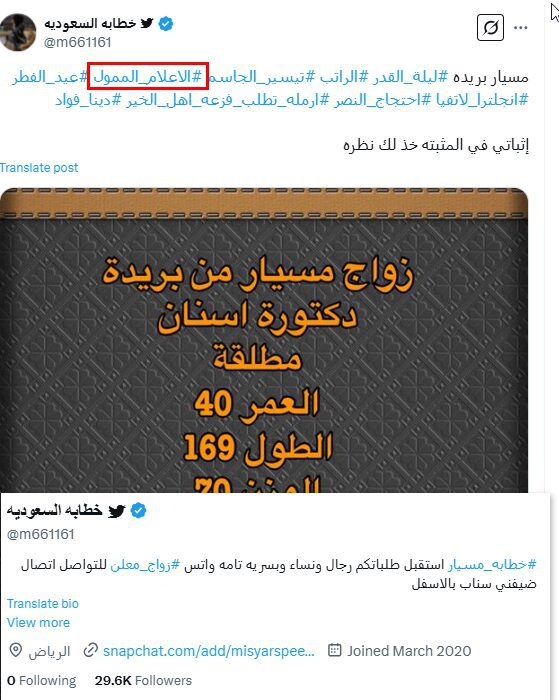
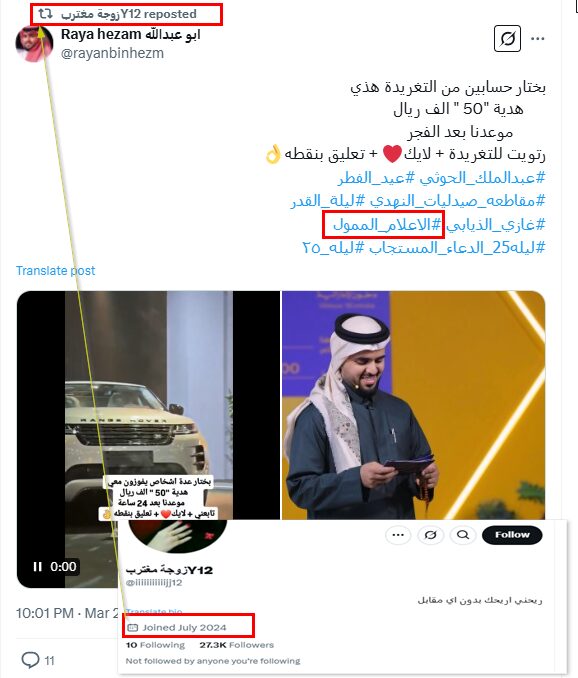
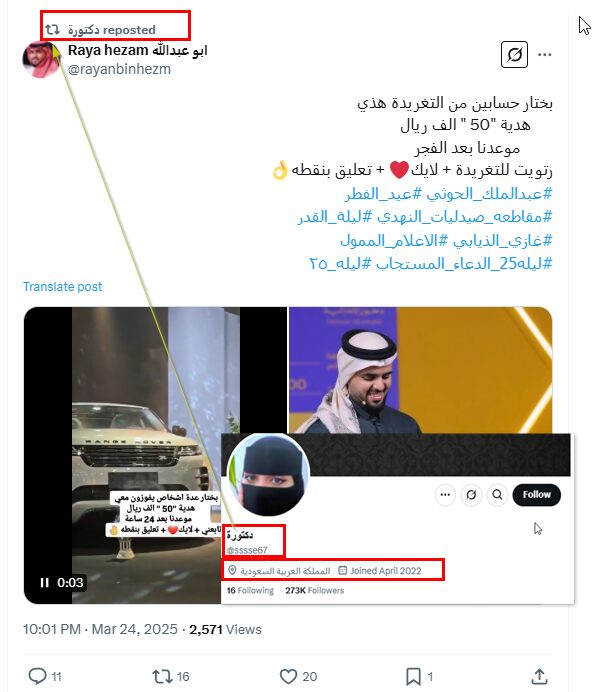
An Iranian account was also found, tweeting in Persian, accusing George Soros, the founder of the "Open Society Foundation," of having ties with Israel.
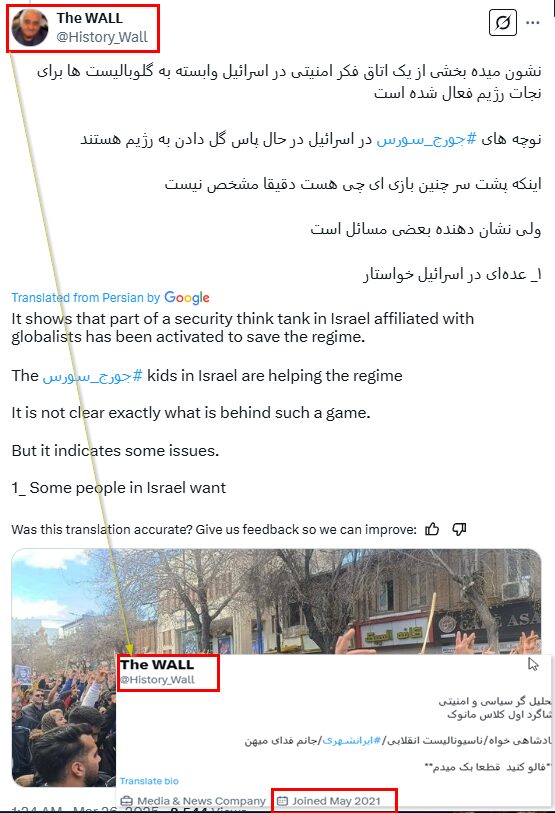
Who is leading the hashtag?
To identify the most active accounts interacting with the hashtag, which received the most reach, we collected all the posts mentioning the hashtag, totaling approximately 2,000 posts. After analyzing them, it became clear that the list of the top ten accounts with the most posts and interactions with the hashtag included several Saudi commercial accounts.
”
To identify the most active accounts interacting with the hashtag, which received the most reach, we collected all the posts mentioning the hashtag, totaling approximately 2,000 posts. After analyzing them, it became clear that the list of the top ten accounts with the most posts and interactions with the hashtag included several Saudi commercial accounts.
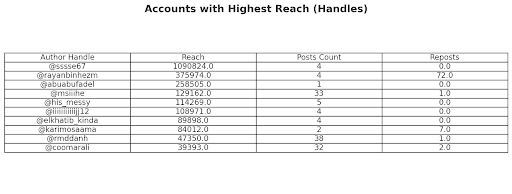
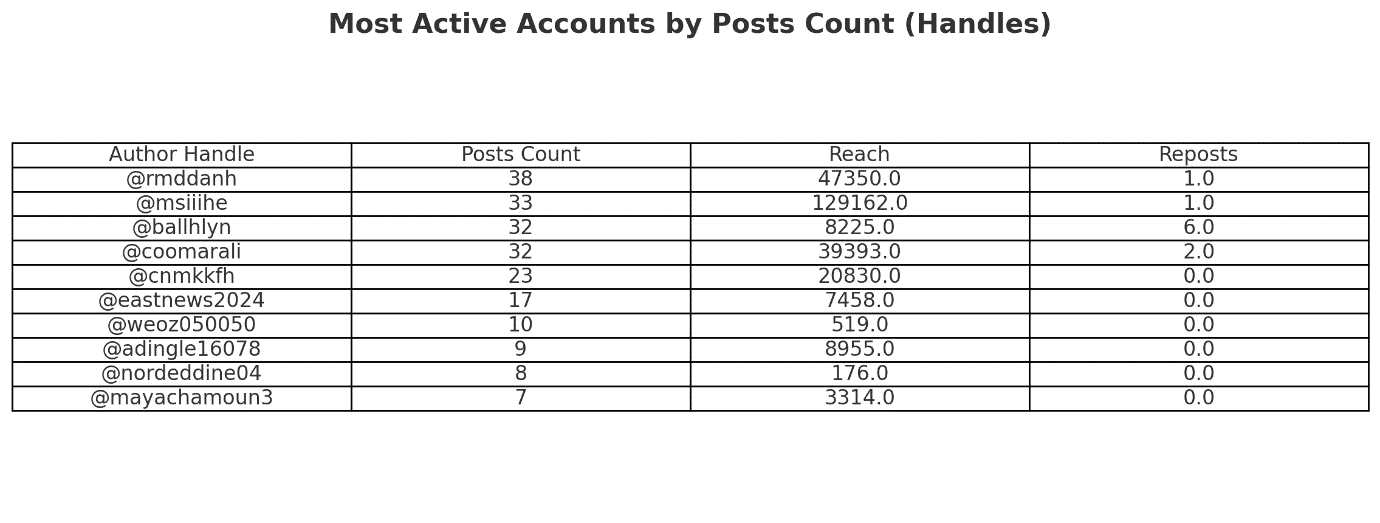
The account @rmddanh topped the list of the most interactive accounts. Its posts were reshared by another Saudi commercial account called @Karimosaama, which uses several hashtags to amplify its posts, including “#الإعلام_الممول” which appeared in 38 posts, most of them reshared from @Karimosaama.
What is notable is that the posts of the latter account receive repeated comments from the same accounts that topped the list of interactions with the hashtag, such as: Musahem, an account involved in judicial execution bills, Omar Al Omari, and Ramadan Al Khair.
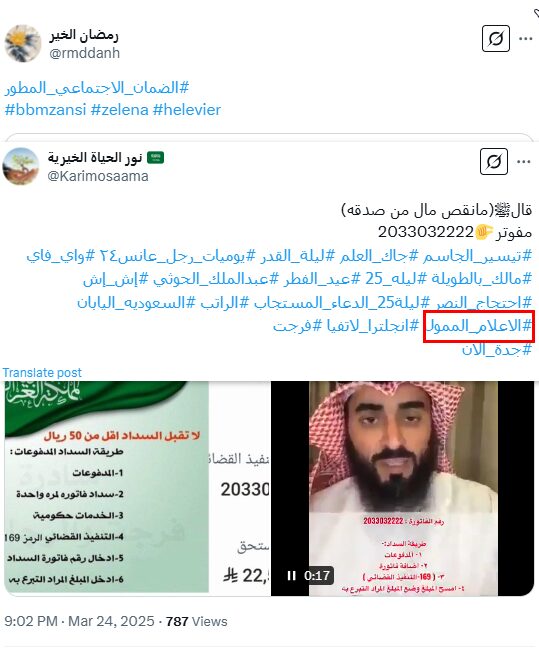
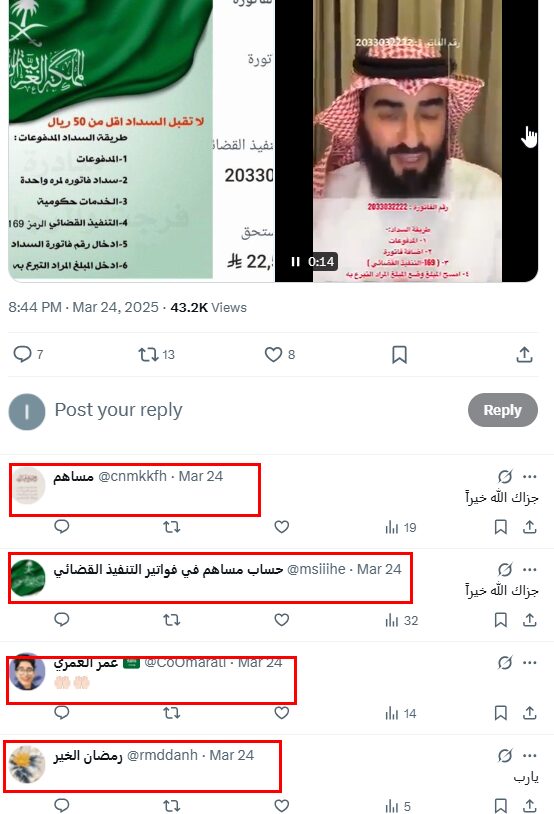
This pattern matches the behavior of automated accounts in coordinated and directed campaigns, where some accounts amplify a hashtag by resharing certain posts and exchanging comments among themselves. This creates a feedback loop that increases engagement and pushes the hashtag to the forefront.
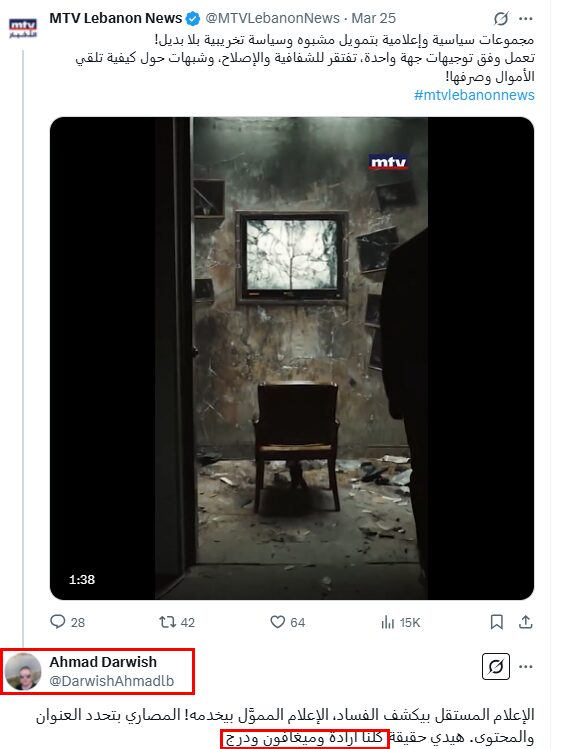
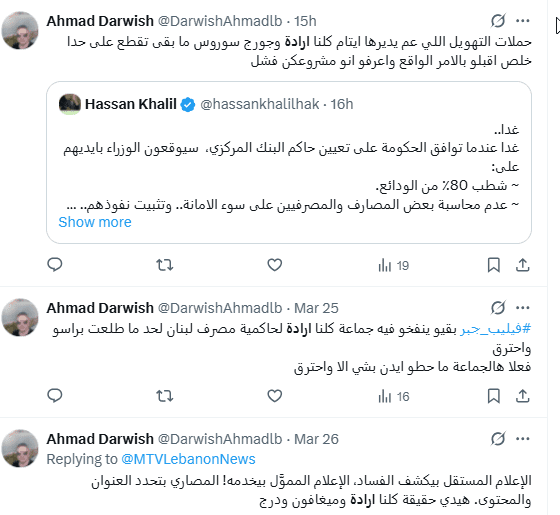
Other Lebanese accounts also emerged among the most active in engaging with the hashtag, such as @DarwishAhmadlb and @mayachamoun3, which displayed a similar pattern of interaction and posting to the previously examined Lebanese accounts.
What is interesting is that the earliest available posts on these accounts date back to March 2025, even though they were created in 2016 and 2017.
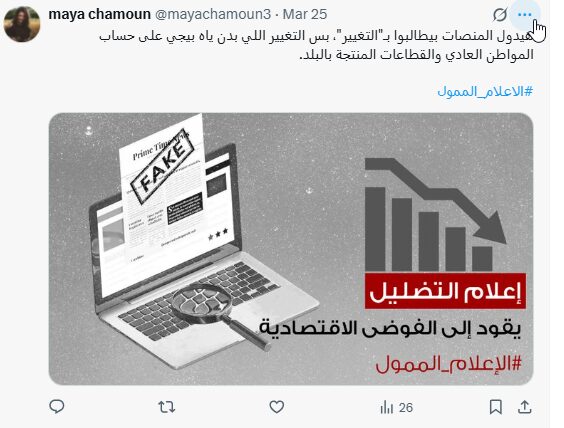
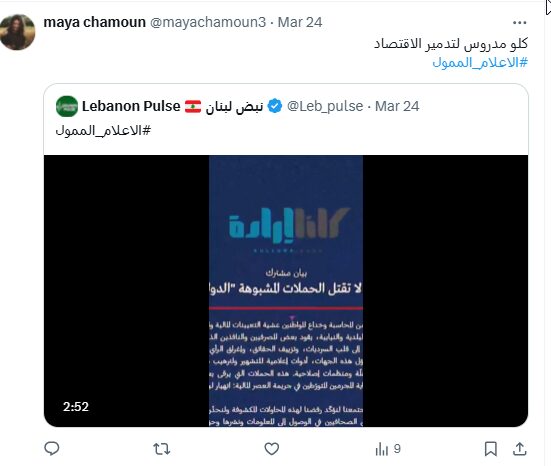
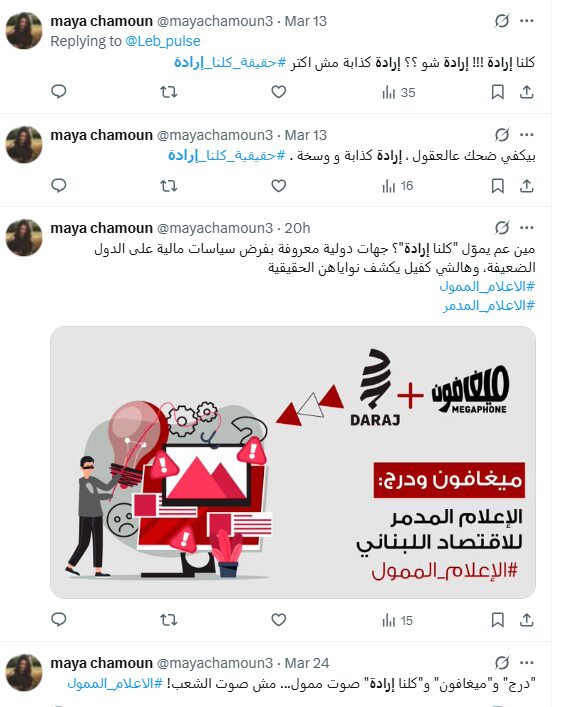
Coordinated Campaign Against Kulluna Irada
When we entered "Kulluna Irada" and "The Truth About Kulluna Irada" to the search keywords on Meltwater, it became clear that the volume of posts surrounding these phrases was much larger than those associated with the hashtag #الإعلام_الممول (Funded Media).
The data also showed that the posting related to the hashtag #كلنا_إرادة (Kulluna Irada) began last January and peaked on March 24th of this year, which was the same day that the hashtag (Funded Media) reached its peak. This suggests a potential connection between the two campaigns.
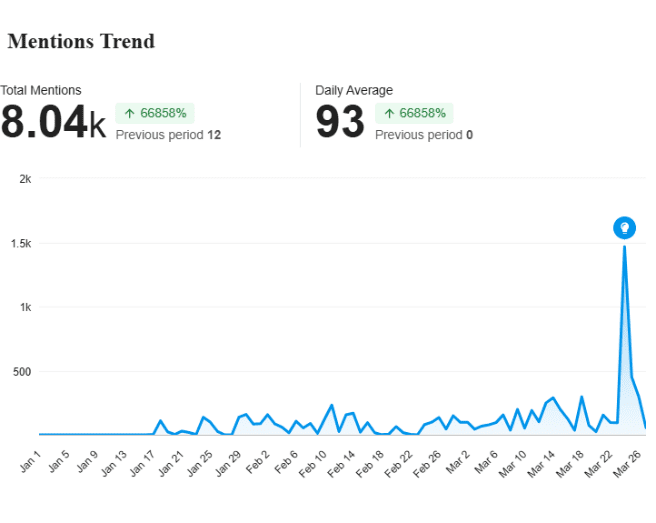
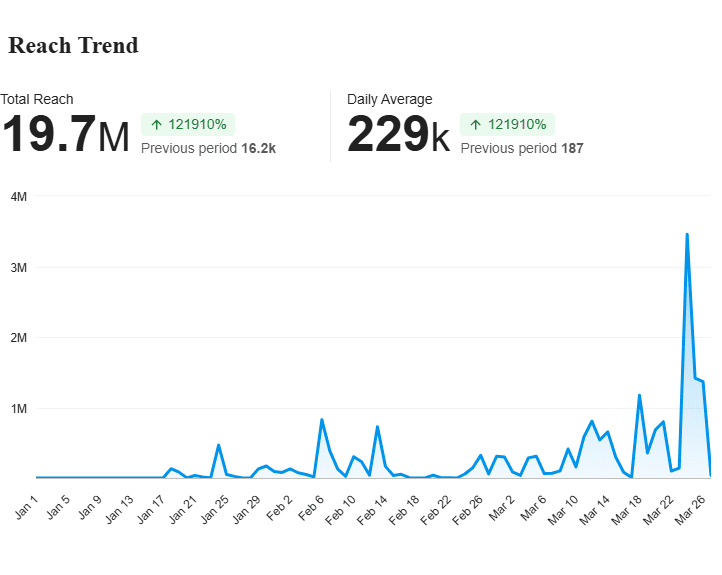
Although the number of posts containing the hashtags (Kulluna Irada) and (Funded Media) reached around eight thousand posts, their reach approached 20 million times. When expanding the time range for analysis, it became clear that this campaign is not new; it dates back to January 2024, peaking on April 24, 2024, with a reach exceeding 15 million times. This indicates a longer timeframe and continuity in targeting the relevant media platforms.
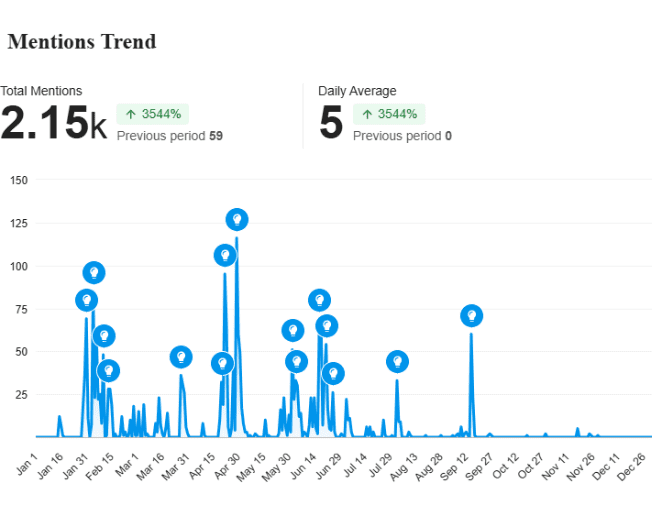
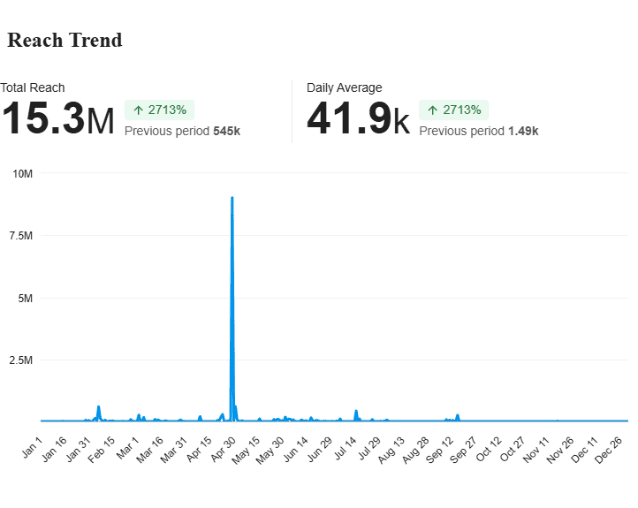
While the percentage of original content associated with the hashtag #الإعلام_الممول (Funded Media) was around 42%, the hashtag #كلنا_إرادة (Kulluna Irada) saw a notable decrease in original content, which did not exceed 12.4% of the total posts. This suggests the possibility of an inflated campaign based on intensive reposting rather than the production of original content.
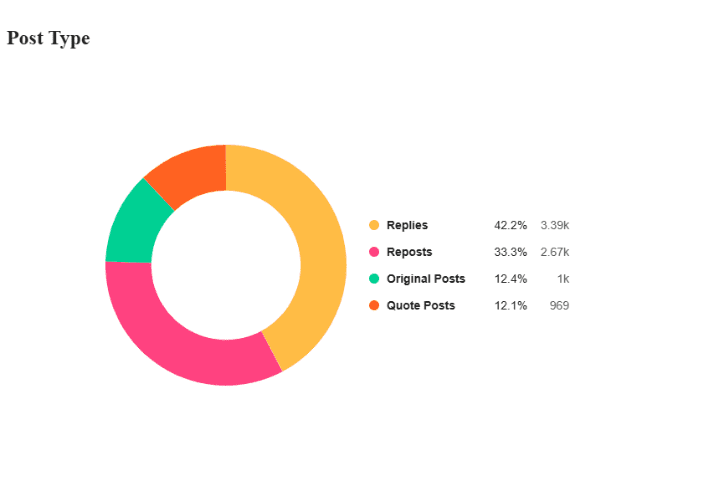
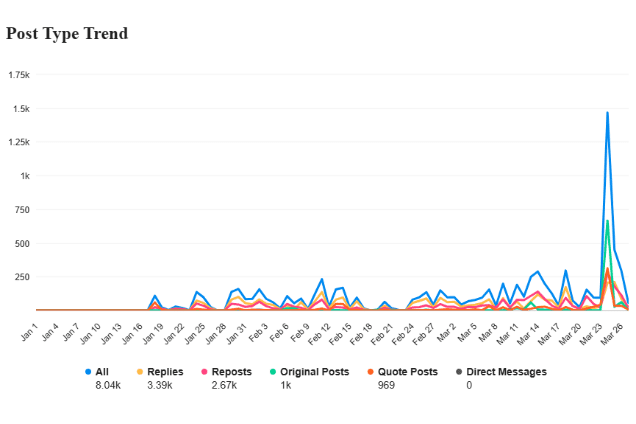
The most frequently repeated words within the hashtag (Kulluna Irada) were focused on the issue of the banking system and depositors' funds, alongside the political and banking figures associated with it; with the "Kulna Irada" organization and several political actors in Lebanon at the forefront.
As for the list of countries participating in the campaign, there was no significant change, with Lebanon remaining the primary source of posts, followed by Saudi Arabia. This raises questions about the role of Saudi accounts in interacting with this campaign and how their involvement might be linked to amplifying the debate on the issue.
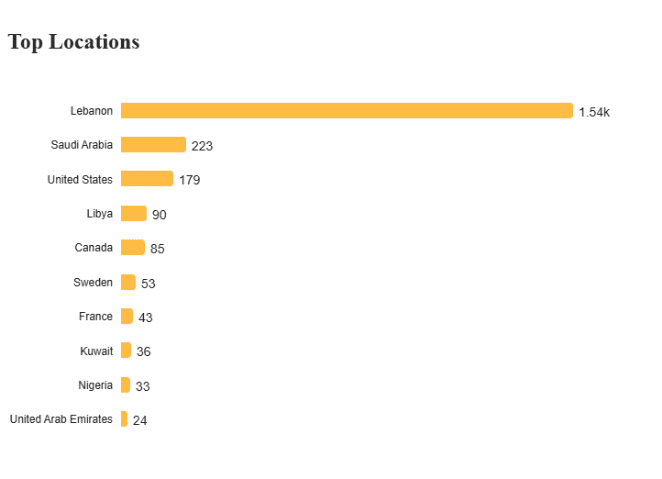
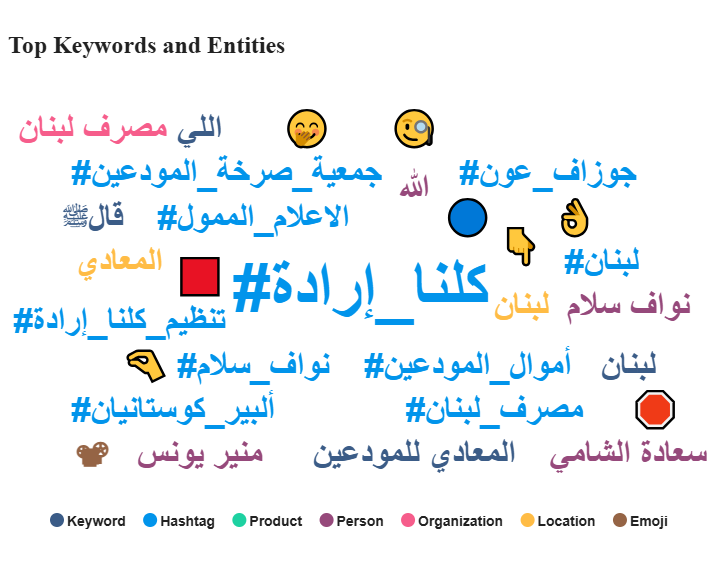
As seen in the negative word cloud, the critical discourse towards the Kulna Irada organization focused on accusing it of being against depositors. This was reflected in the most shared and widespread posts, which were published by an account called "The Depositors' Cry Association." While the negative words in this year's campaign were similar to those of last year, the issue of depositors was still present, along with the issue of Syrian refugees, as shown in the word cloud.
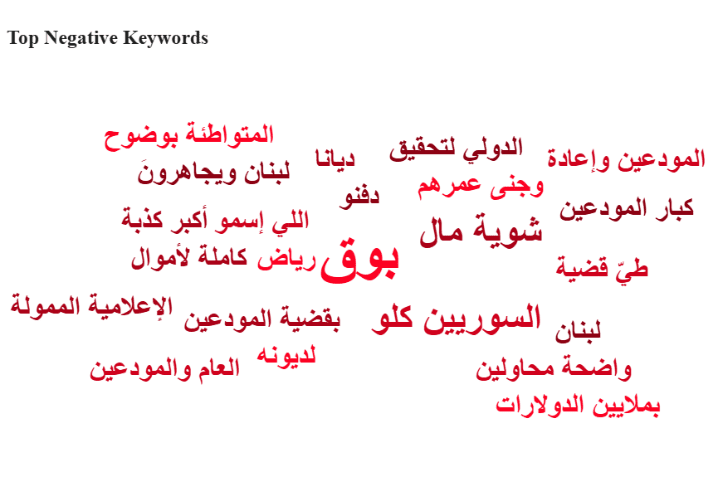
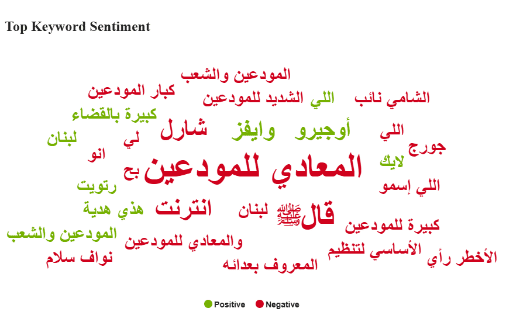
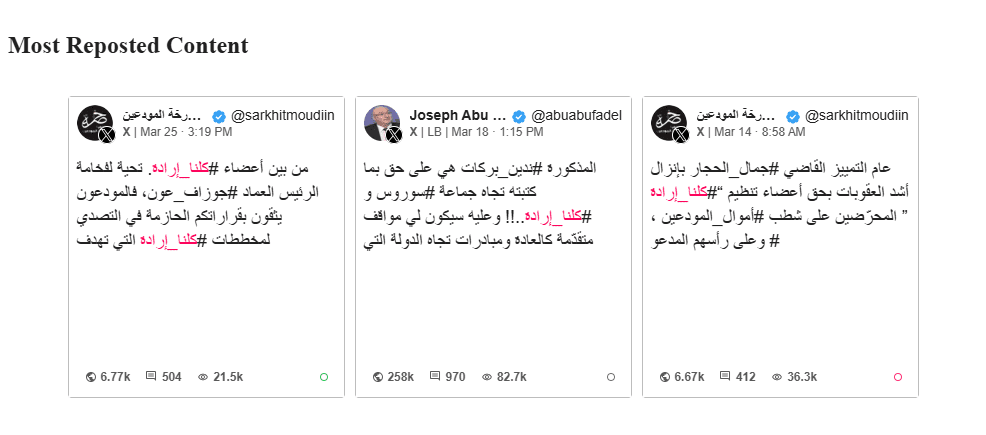
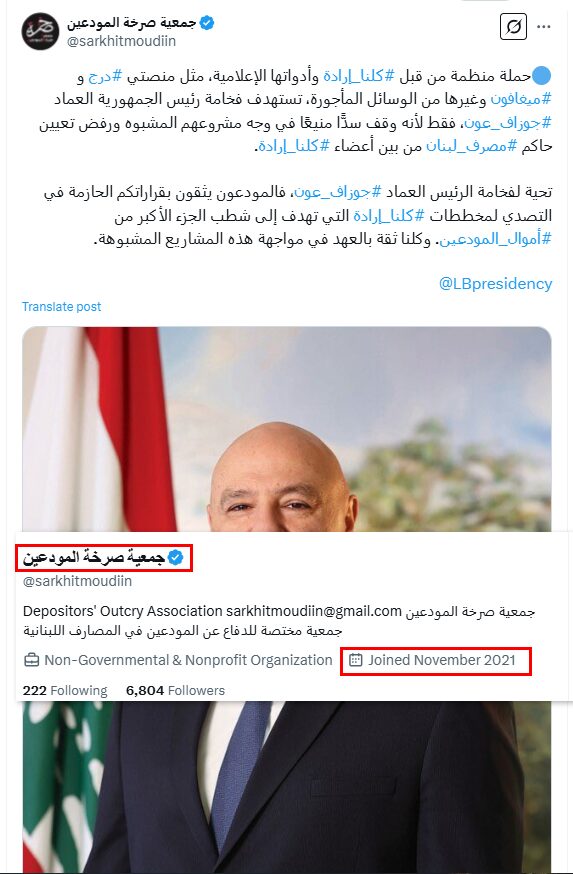
Accounts for Attacking and Others for Amplification
To identify and examine the network of active accounts behind this campaign and to understand the truth behind the campaign against Kulluna Irada, we analyzed all the posts associated with the hashtags "#حقيقة_كلنا_إرادة" (The Truth About Kulluna Irada), "#كلنا_إرادة" (Kulluna Irada), and "#الإعلام_الممول" (Funded Media), totaling around eight thousand posts. The analysis revealed a list of accounts with the highest number of posts.
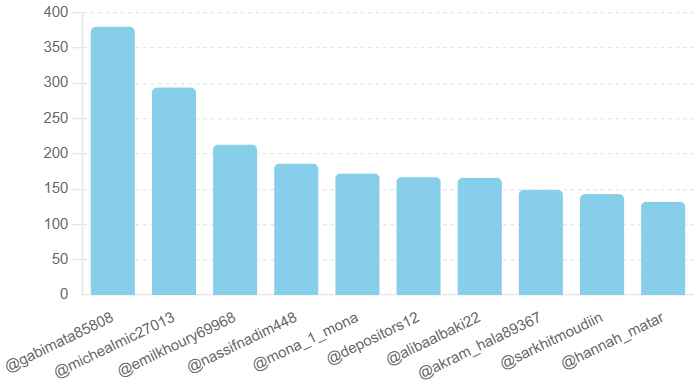
The account Gabi Mata topped the list of the most interactive accounts with 380 posts, all of which were published this year. It is a newly created account that displays the logo of the Lebanese Armed Forces and publishes identical posts, accompanied by a large number of hashtags for amplification.
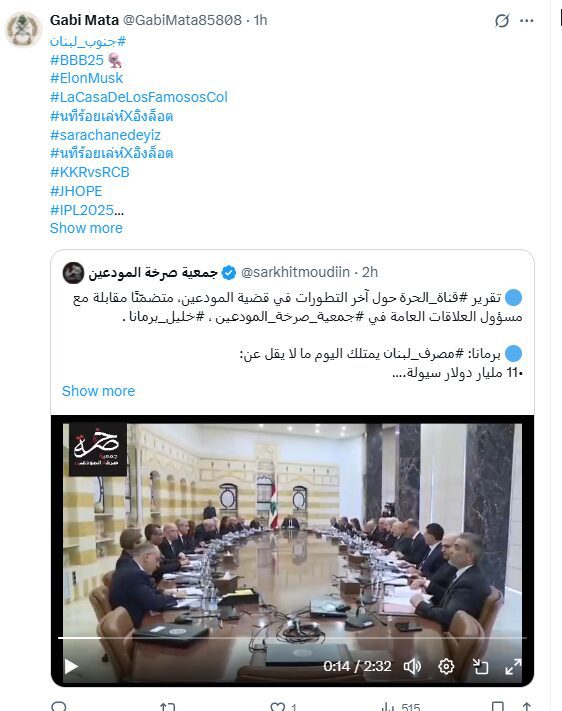
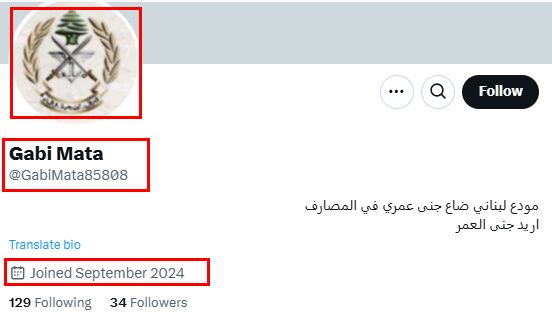
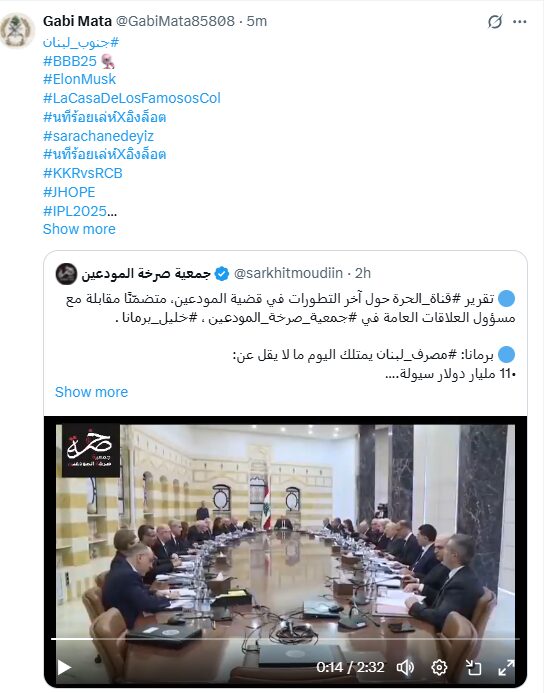
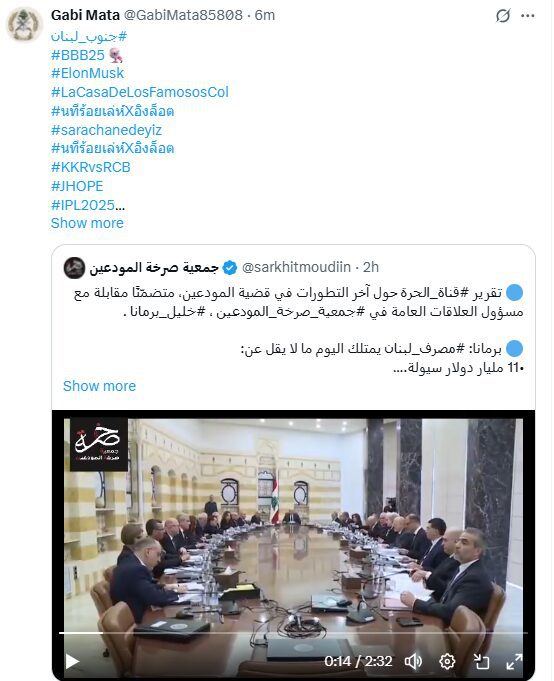
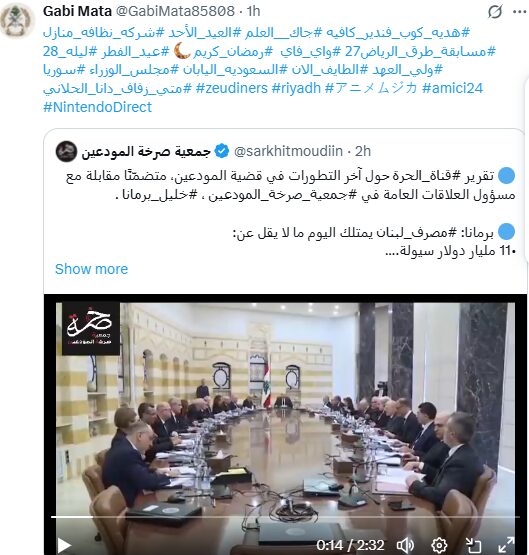
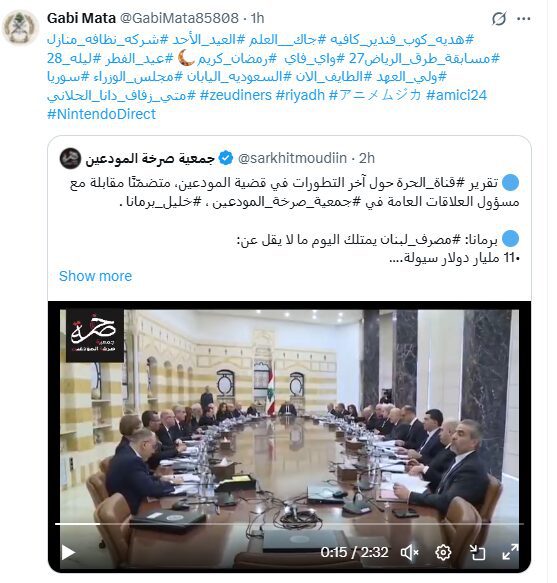
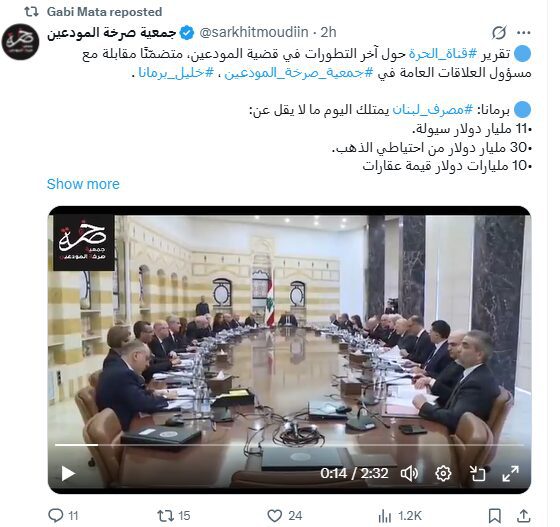
To verify the interaction pattern of the account, we conducted a programmatic analysis of the posting times and their consistency. The results showed that 30% of the posts were identical, which is relatively high. It was also found that the account posts throughout the day, with posting frequency peaking during two main periods: between 14:00 and 15:00 in the afternoon, and between 09:00 and 12:00 in the morning, as shown in the chart.
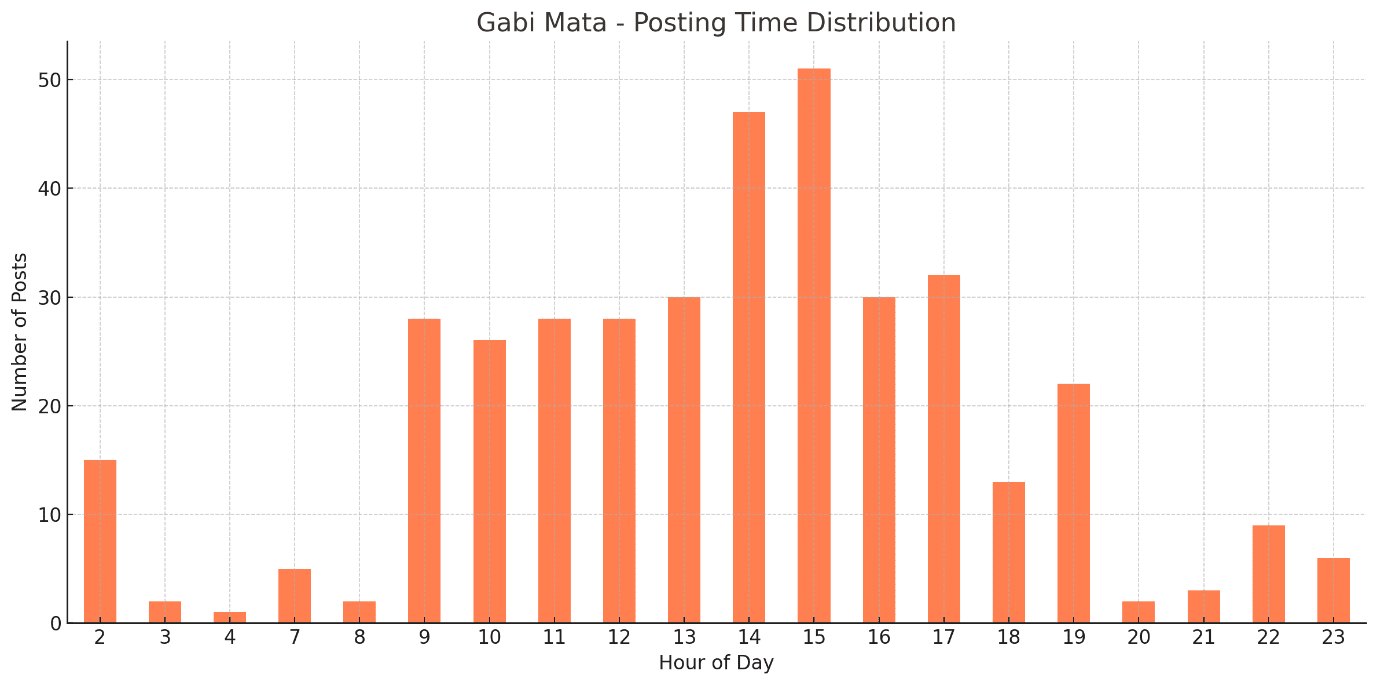
To achieve a more accurate analysis, we studied the account's interaction pattern in terms of the rate of quotes, likes, and replies. The results showed that the account posts frequently, but human interaction is low, indicating that it is an automated or semi-automated account that uses scheduling programs for posting.

The second account on the list of the most active accounts on the hashtags is @Michealmic27013, a newly created account with high posting frequency. Its posting patterns and interactions are very similar to those of Gabi Mata’s, but the rate of post duplication is low, and the timing distribution of posts is normal.
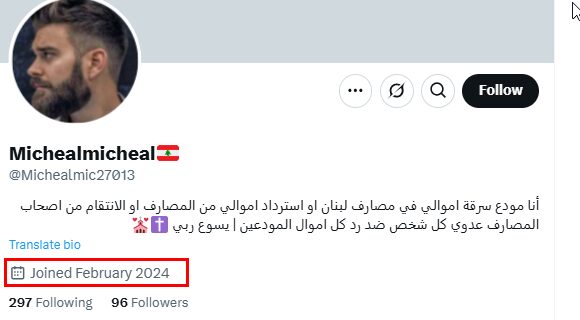
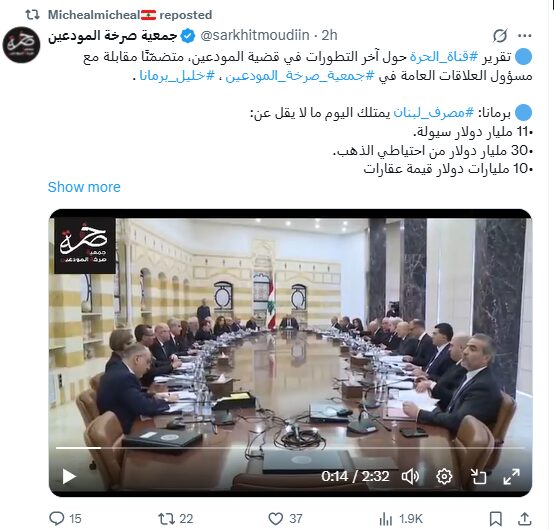
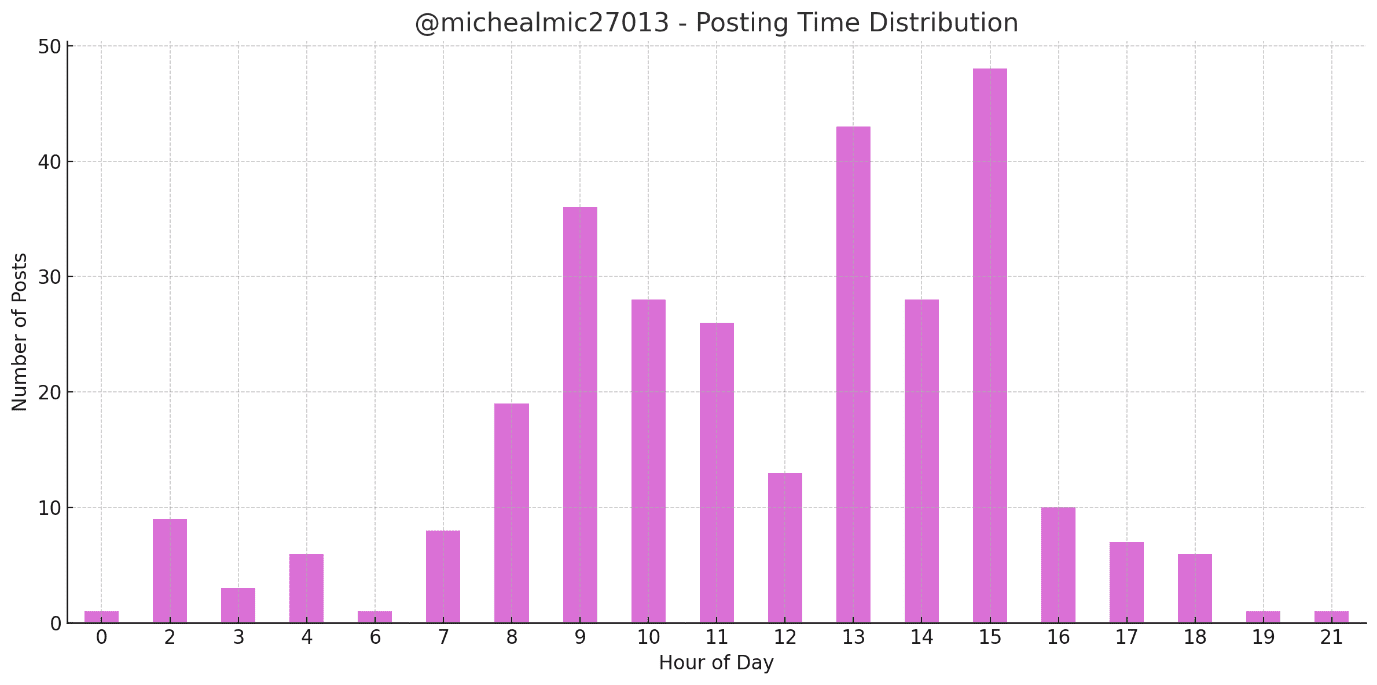

In third place on the list of the most active accounts is the account @EmileKhoury, with 213 posts. This is also a newly created account, and its activity focuses on resharing the same content posted by the previous two accounts.
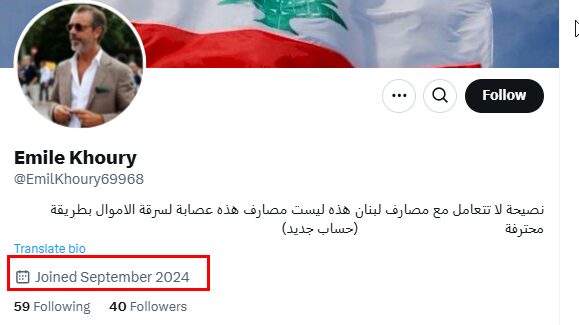
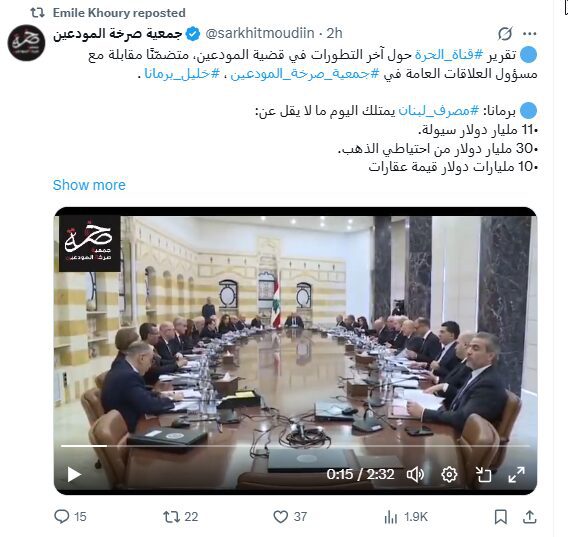
The programming analysis of the post matching rate and the distribution of posting times for the account @EmileKhoury provided indicators of human activity, based on the low matching rate of the posts and the natural distribution of the account's posting times.
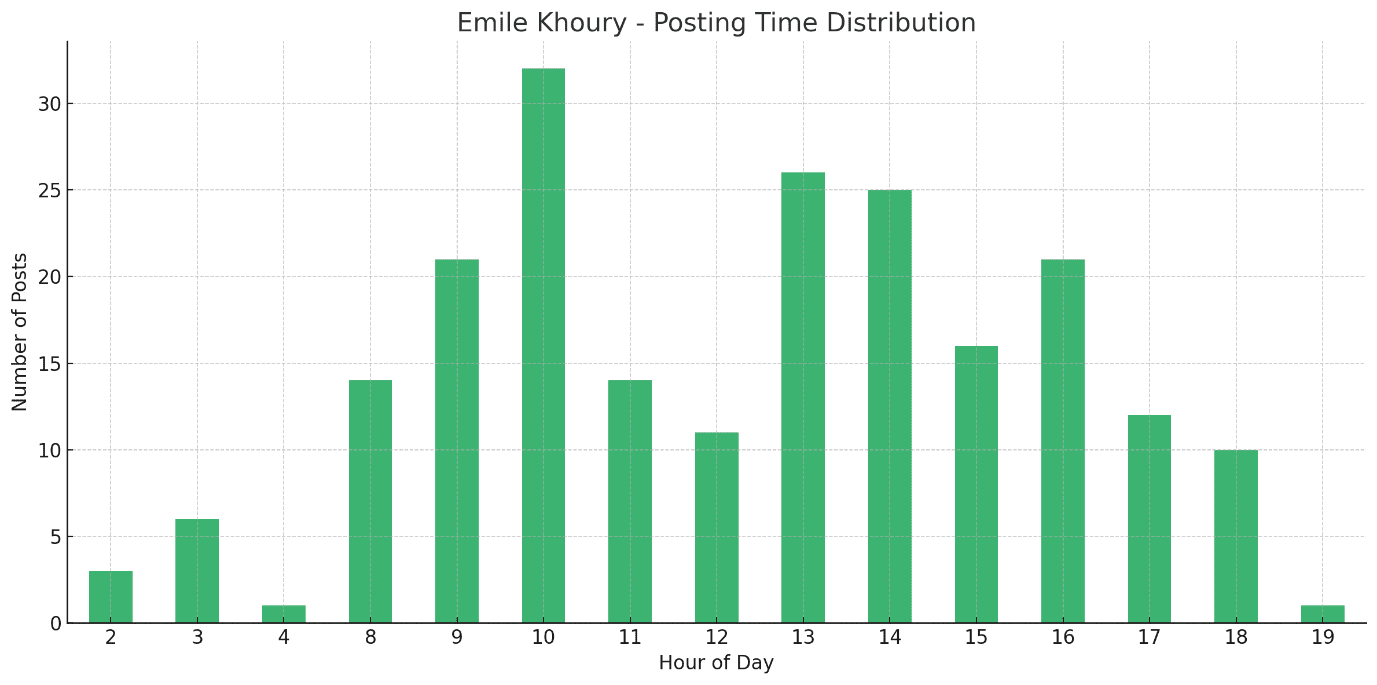
All the previous accounts shared the commonality of reposting content from the account of the "The Depositors’ Cry Association," which seeks to represent Lebanese depositors in Lebanese banks. The same account also appeared at the top of the list of accounts with the most shared and widely reaching posts within the data.
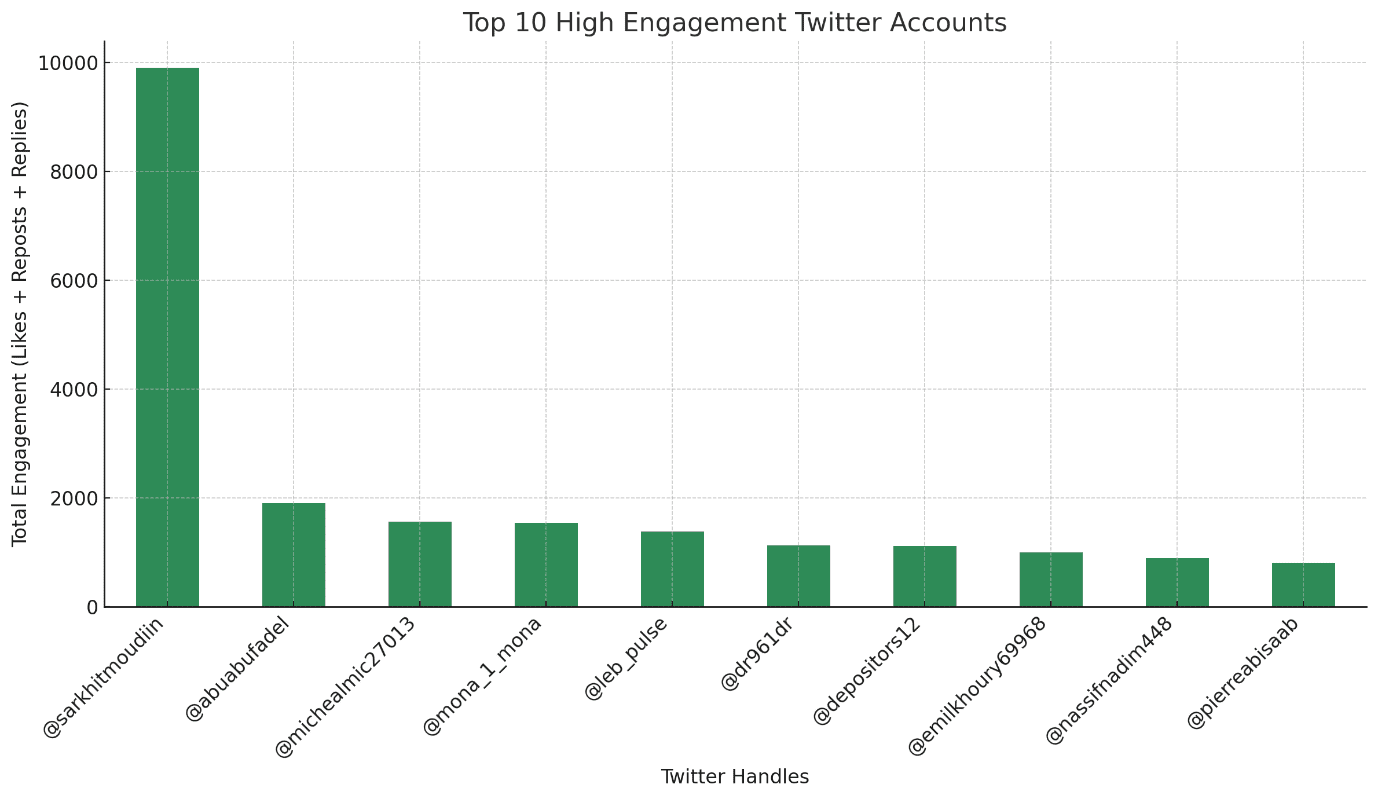
The Depositors’ Cry Association" account is relatively new and leads the campaign attacking the Kulluna Irada organization, accusing it of attempting to legislate a law to erase depositors' funds and its connections with corrupt banking figures.
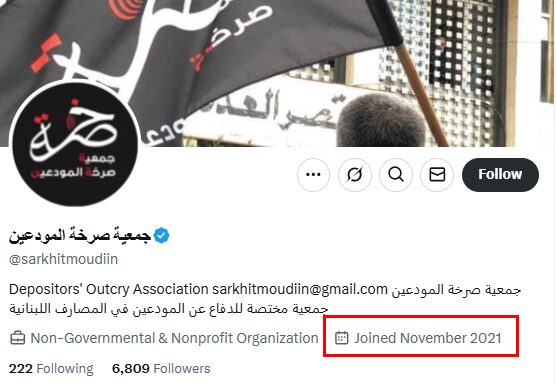
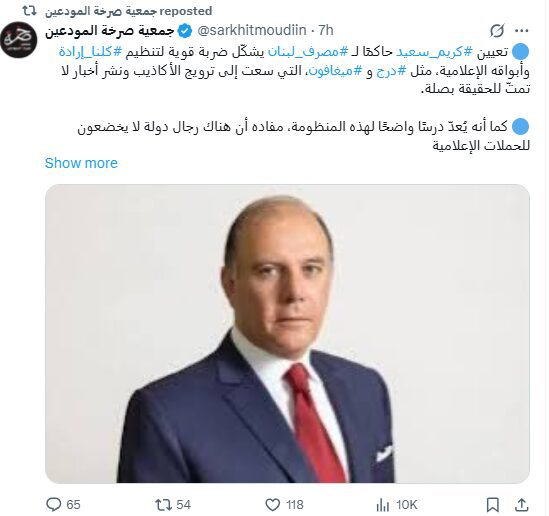
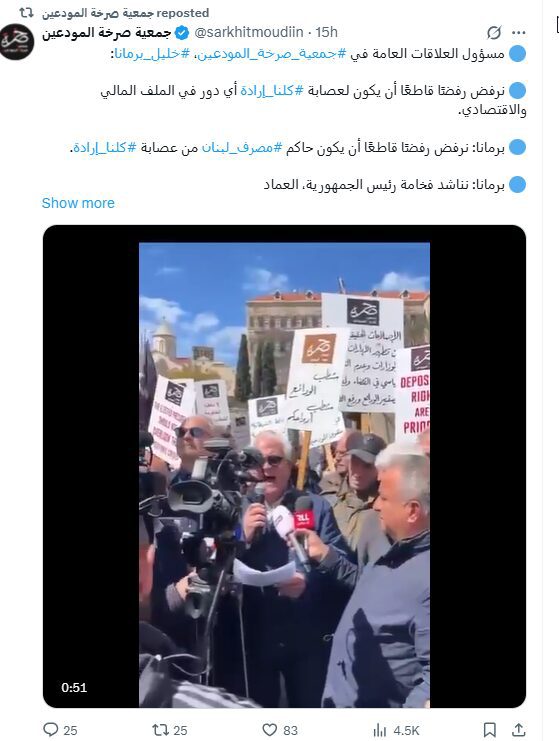
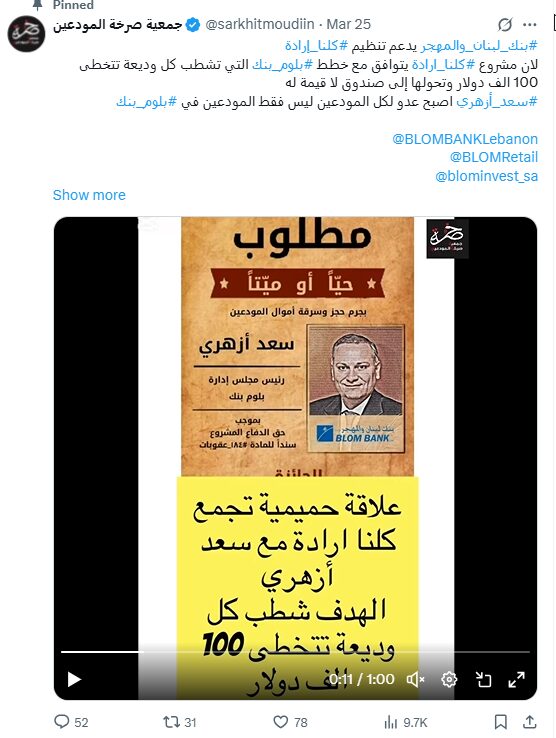
The same narrative is adopted by the lawyer Joseph Abu Fadel, known for his controversial posts against Lebanese women.
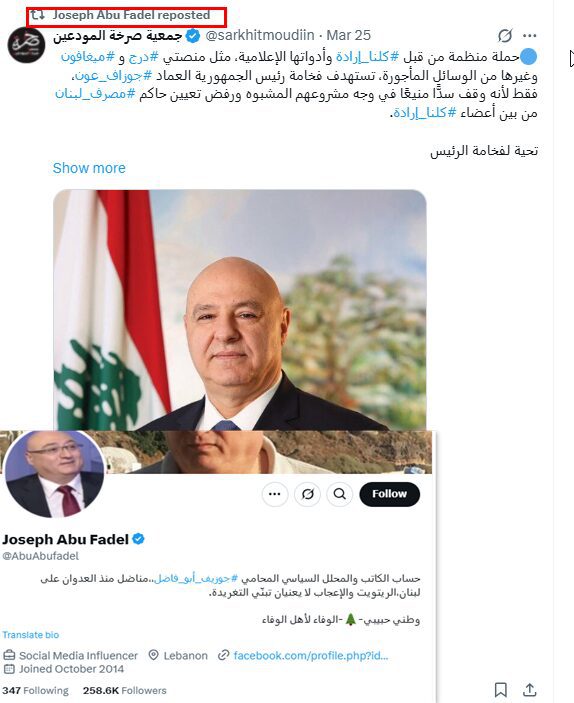
The association’s Public Relations Officer is Khalil Barmana, who has a notable presence on MTV, one of the channels that led the attack on the Kulluna Irada and the independent media platforms. The channel is also linked to the Lebanese banker Antoine Sahnaoui, CEO of "Société Générale" a bank in Lebanon and Jordan (SGBL), who filed several legal complaints against Daraj after the latter published an investigation revealing his liquidation of a deposit worth 254 billion Lebanese pounds (169 million dollars at the time) before its actual due date in 2047.
This transaction was approved by Riad Salameh, the former governor of the Central Bank of Lebanon, under the pretext that "Société Générale" needed liquidity in Lebanese pounds, according to a document obtained by Daraj, just weeks before the economic crisis, specifically on September 16, 2019.
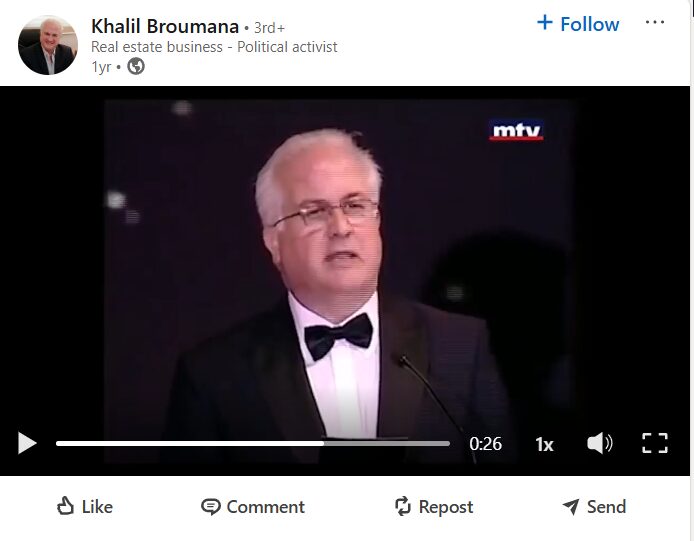
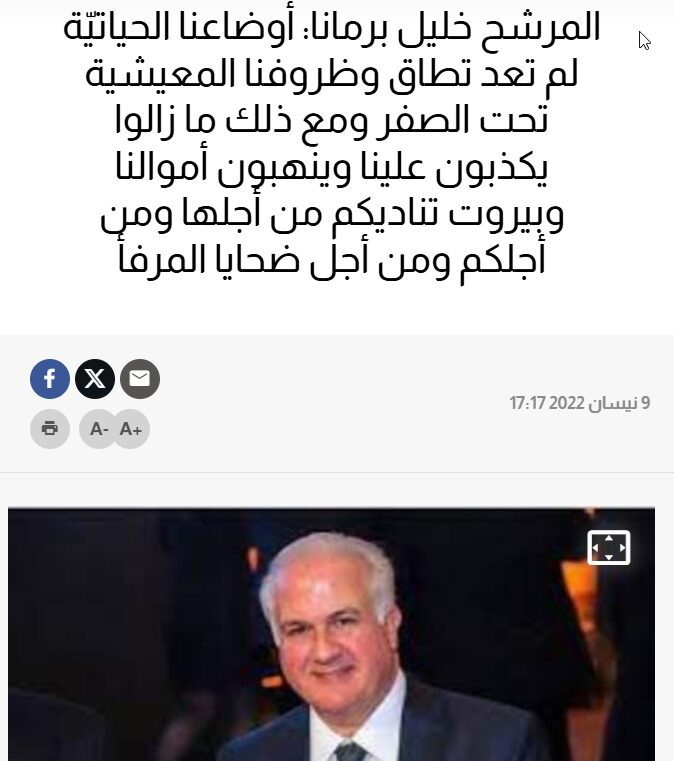
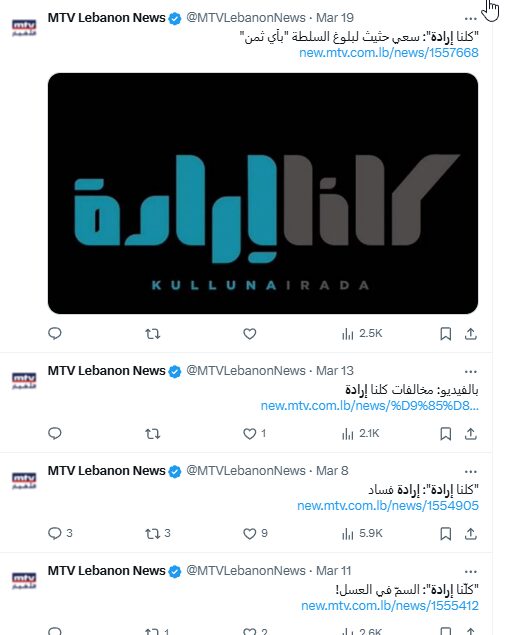
In the list of accounts with the most widely shared posts, the account @dr961dr stands out. It is relatively new, but the username seems suspicious. Most of its content is political propaganda, with no personal posts. This account was active in the campaign against Daraj in 2024, and then it reposted the same content this year within the current campaign. This prompted us to conduct a software analysis to uncover its interaction patterns.
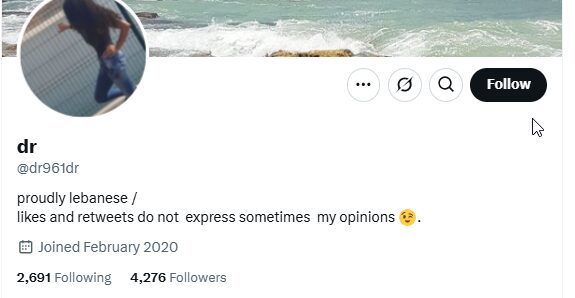
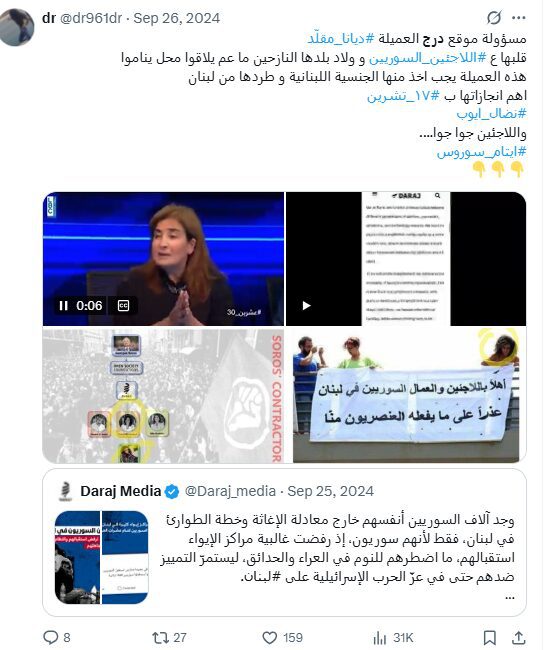
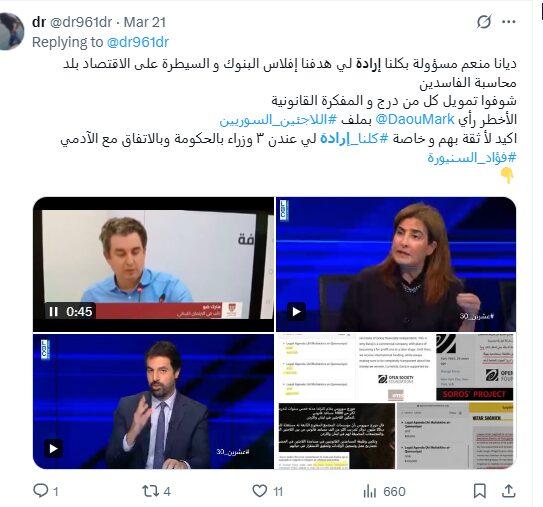
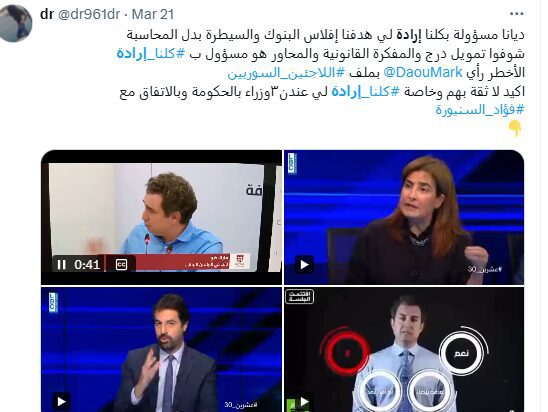
The analysis of the matching percentage and posting time distribution revealed that the match rate on the account is low. However, what seemed suspicious is that the peak posting time occurs at 5:00 AM, which indicates inhuman behavior, especially when this pattern is repeated consistently.
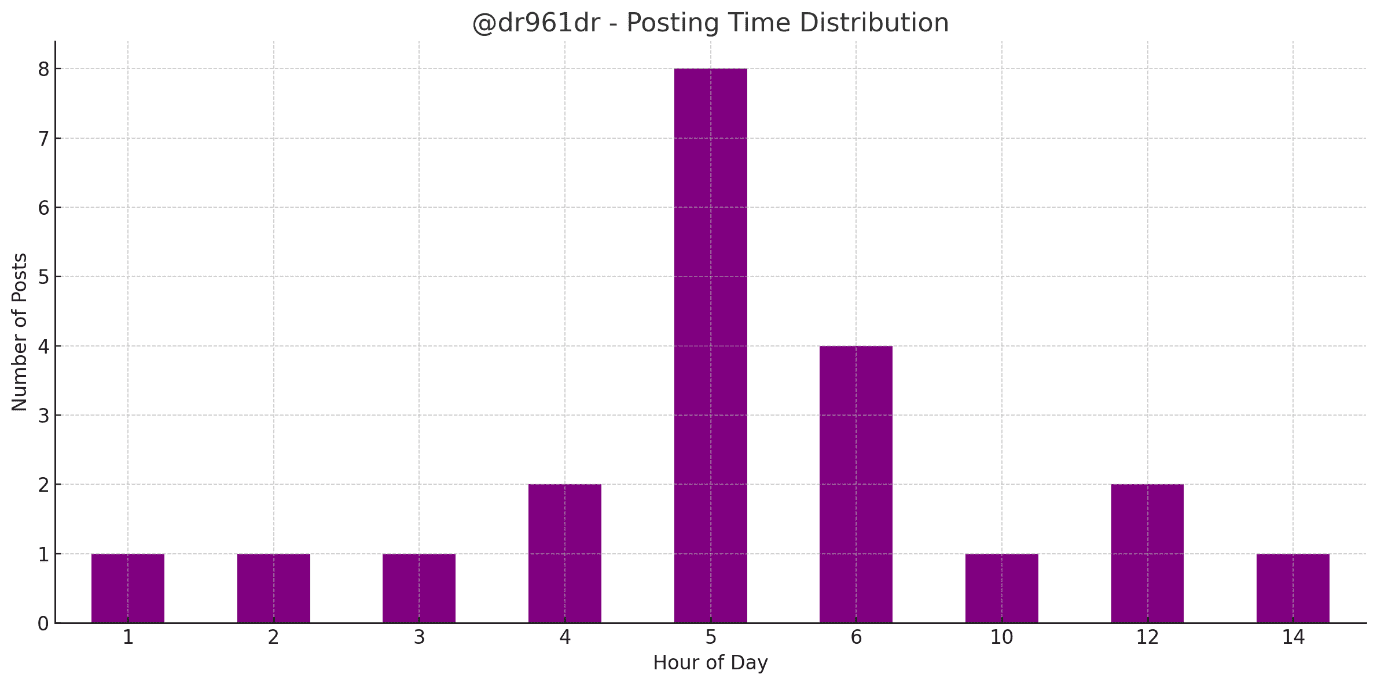
When analyzing the interaction patterns (likes – re-shares – comments), gaps in the account's engagement appeared, despite the regular posting pattern. This confirmed that the account is semi-automated and not personal; it uses scheduling programs for posting.

Based on the previous analyses, the structure of the groups participating in the campaign has become clearer. The accounts involved in the attack on Kulluna Irada, Daraj, and Megaphone can be divided into three groups.
The first group includes real accounts featuring well-known Lebanese personalities, in addition to people adopting these people’s narrative which accuses Kulluna Irada of being anti-depositor, receiving suspicious funding, and attacking the Daraj and Megaphone platforms.
The second group consists of automated Lebanese accounts that work on amplifying and spreading the narrative of the first group. These accounts are generally loyal to the Lebanese army. They display strong attacks on Kulluna Irada and the Daraj and Megaphone platforms, including allegations such as espionage and plans to destroy the economy, claims which are unsupported by any evidence.
The third group includes commercial and suspicious Saudi accounts that work to amplify the hashtag "#الإعلام_الممول" (Funded Media), as we revealed at the beginning of this investigation.
To verify this conclusion, we will conduct a deeper analysis to map the networks of active accounts and the relationships between them.
Relationships between the Accounts
The analysis we conducted using the Yifan Hu algorithm on the Gephi software revealed that the accounts interacting with the hashtags we identified, which led the attack on Kulluna Irada, Daraj, and Megaphone, were divided into several networks. The largest and most interactive network, shown in the image below, stood out due to prominent relationships marked in red.
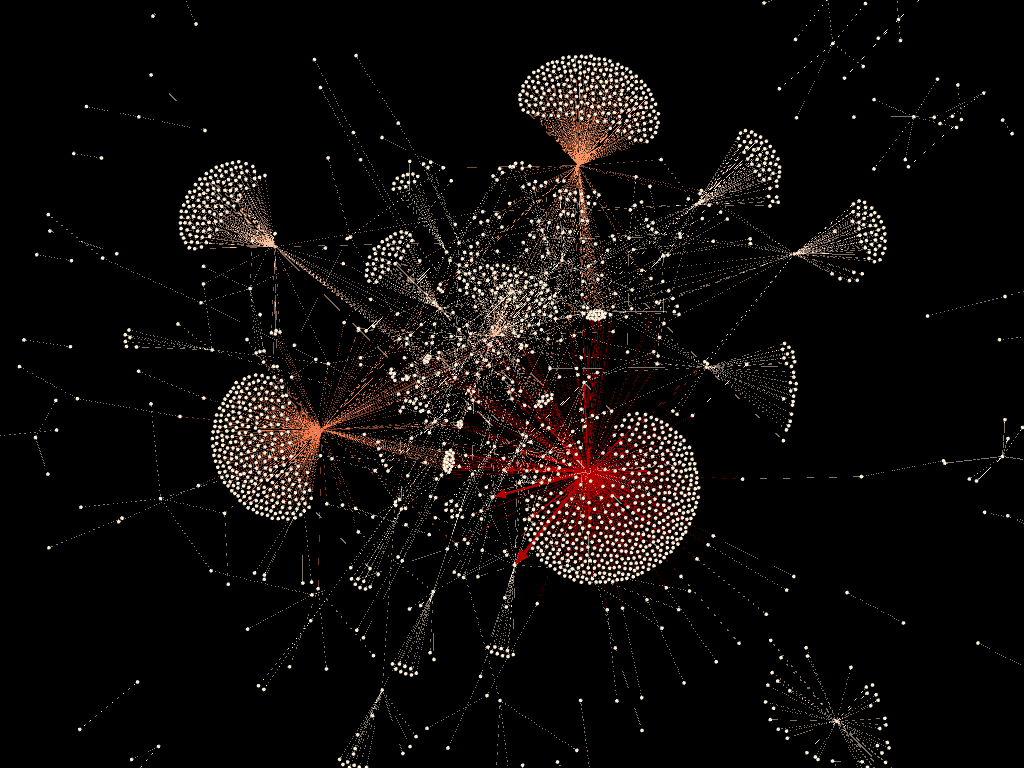
The central account in this network was the account of the Depositors’ Cry Association (@sarkhitmoudiin), which showed a strong connection to the account @gabimata85808, which we previously proved to be an automated account working to amplify the campaign. It was also found that this account is closely linked to the account @michealmic27013, a recently created account with semi-human activity.
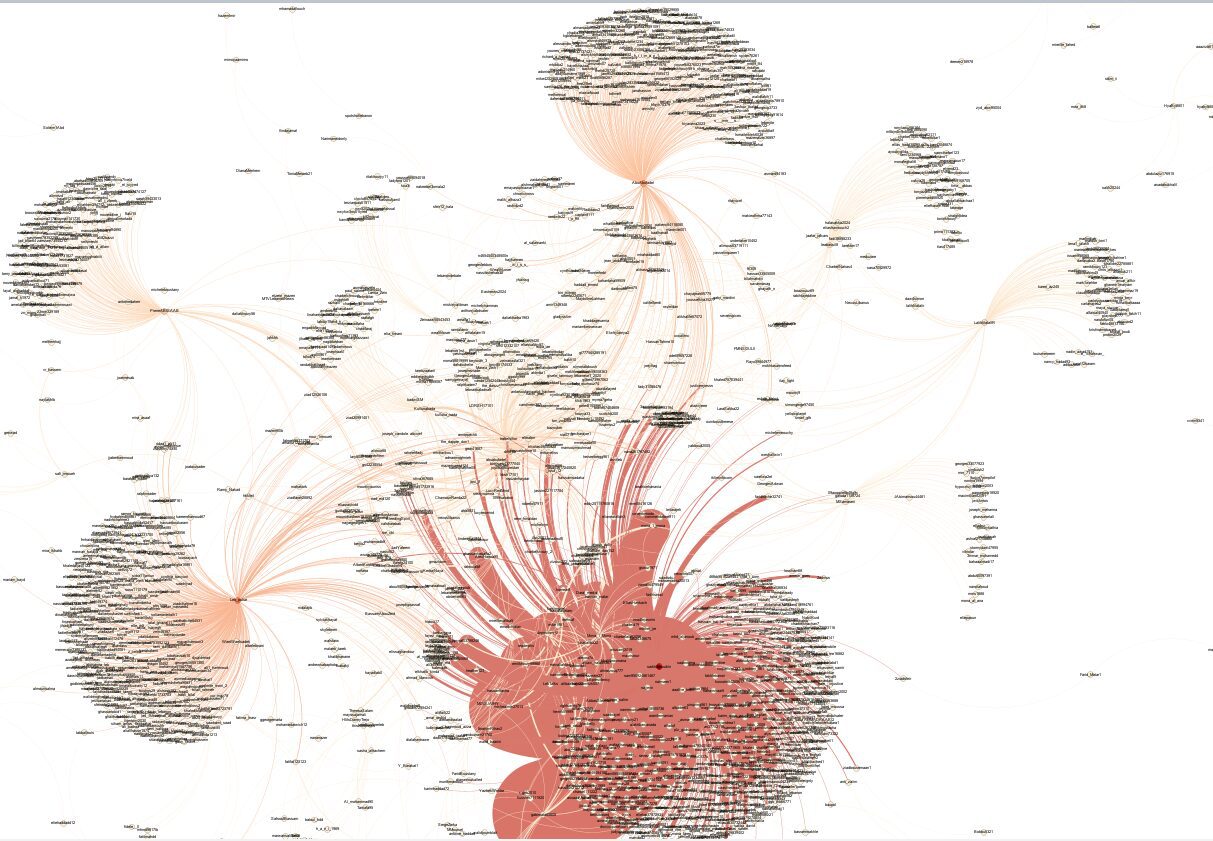
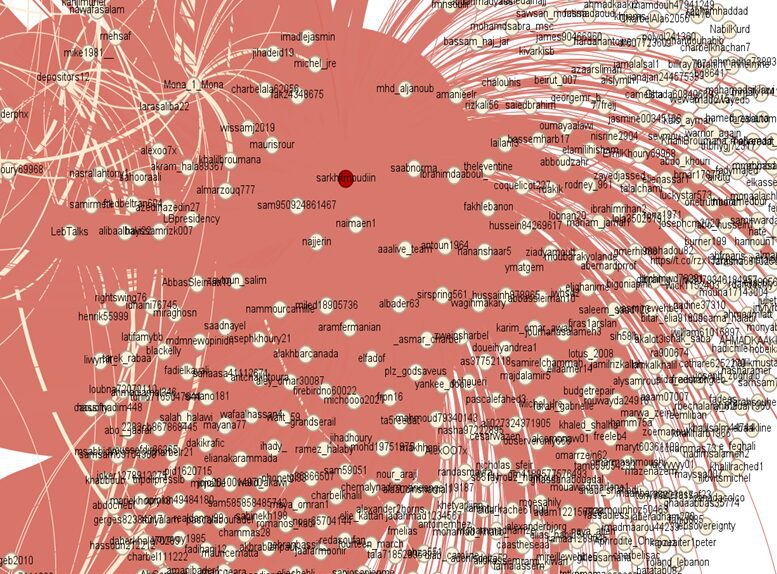
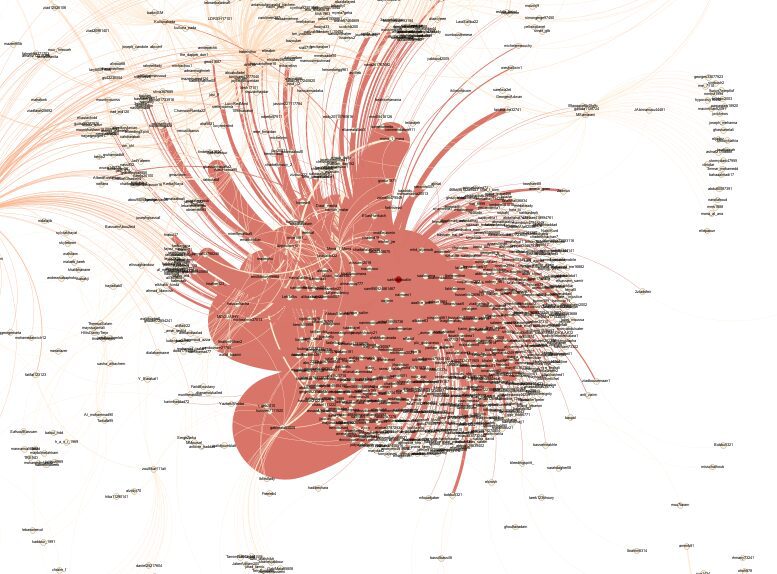
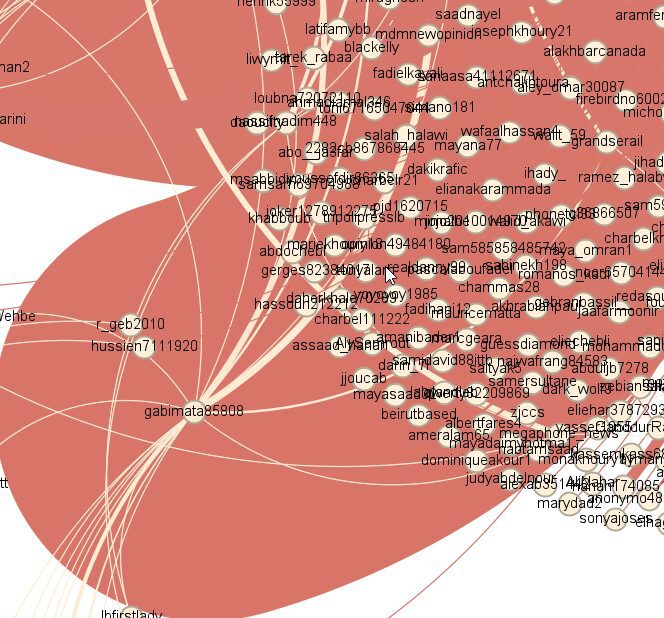
The Depositors’ Cry Association account is also closely linked to the account @depositors12, which represents "Lebanese Expatriate Depositors Association" worldwide. Additionally, the account has a strong relationship with @hannah_matar, a newly created account that played a role in amplifying the attack campaign against Kulluna Irada.
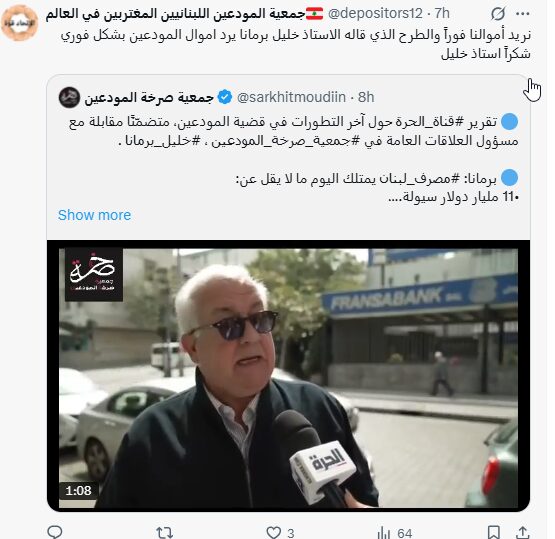
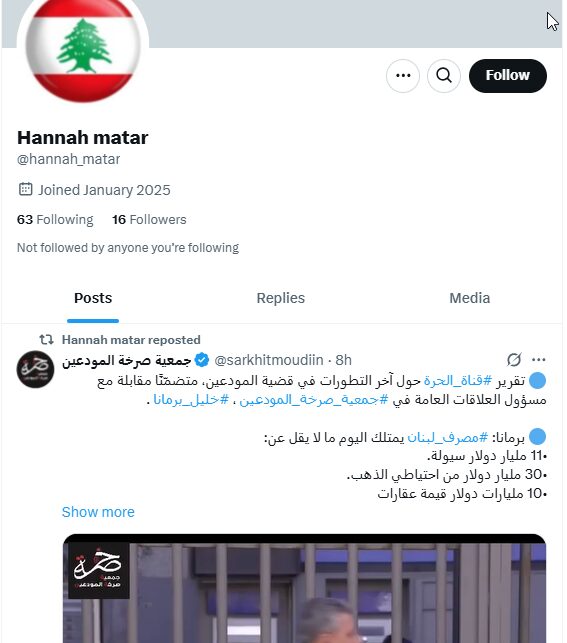
The second network centered around the Nabd Lubnan (Pulse of Lebanon) account, whose suspicious behavior we previously analyzed. However, the network analysis revealed that the account is connected to a large group of amplified automated accounts that worked to repost the video claiming that Kulluna Irada is receiving "foreign funding and engaging in money laundering activities," without any evidence.
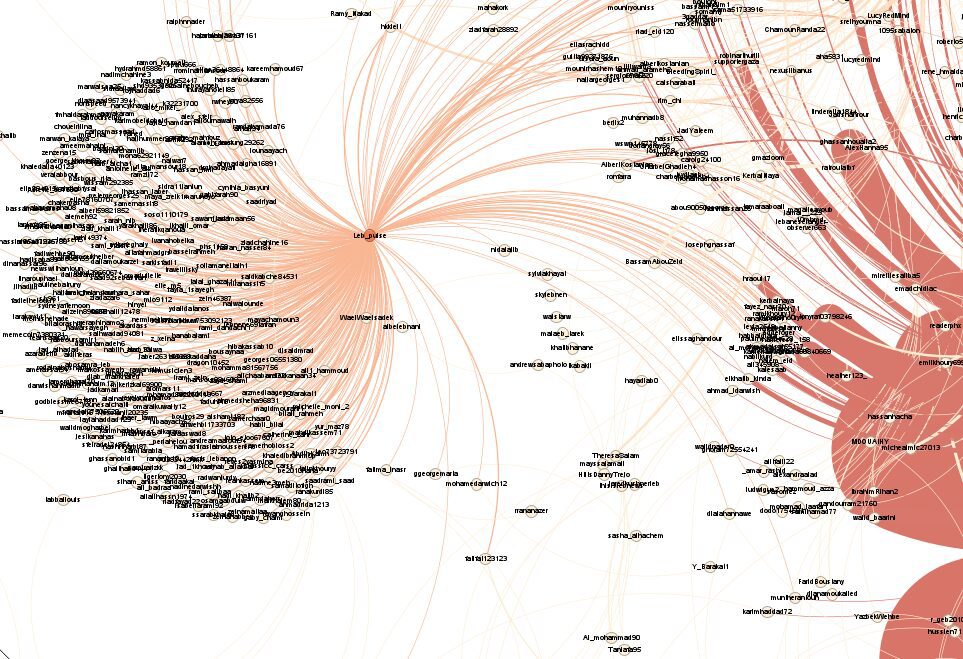
The second network is directly connected to the first network, and is also directly linked to the third network, which centers around the account PierreABISAAB, belonging to Lebanese journalist Pierre Abi Saab, who works for Al Mayadeen, a channel affiliated with Hezbollah.
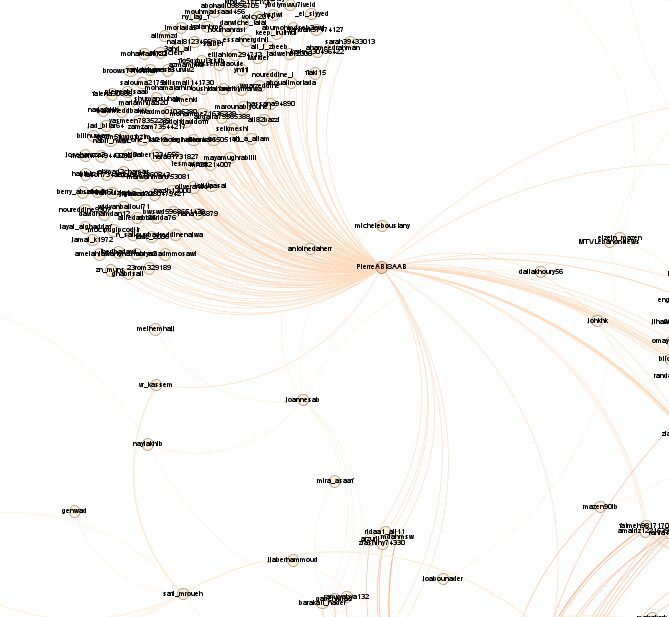
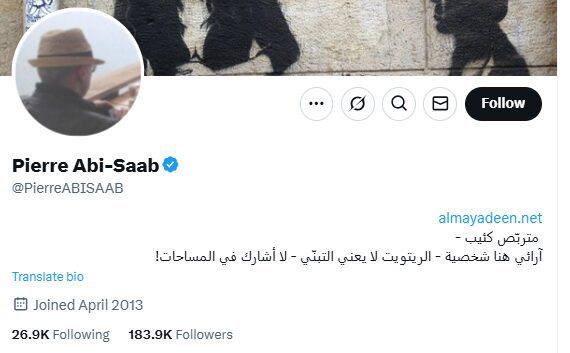
As for the fourth network, it centered around the account AbuAbufadel, belonging to the lawyer Joseph Abu Fadel. This network was strongly connected to the first network and interacted with it in the attack on Kulluna Irada, and the Daraj and Megaphone platforms. Additionally, the first network itself extends to include several sub-networks, including the Saudi accounts network that we revealed at the beginning of the investigation.
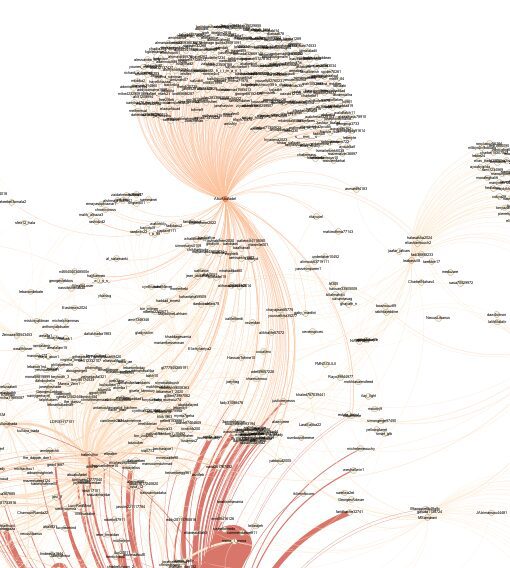
It is clear from the above that the largest and most influential network in this campaign is led by the Depositors' Cry Association, which intersects with MTV, one of the media arms of Anton Saad. The newspaper Al Akhbar had previously revealed Saad's strong relationship with Saudi Arabia, pointing out his meeting in Paris with Saudi intelligence chief Khalid Al Humaidan, in the presence of MP Wael Abu Faour, who enjoys strong relations with both sides and plays a role in bridging their viewpoints.
